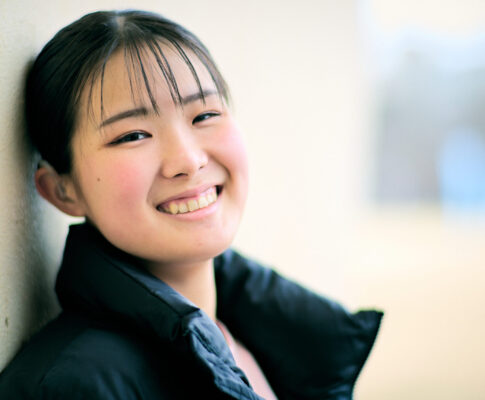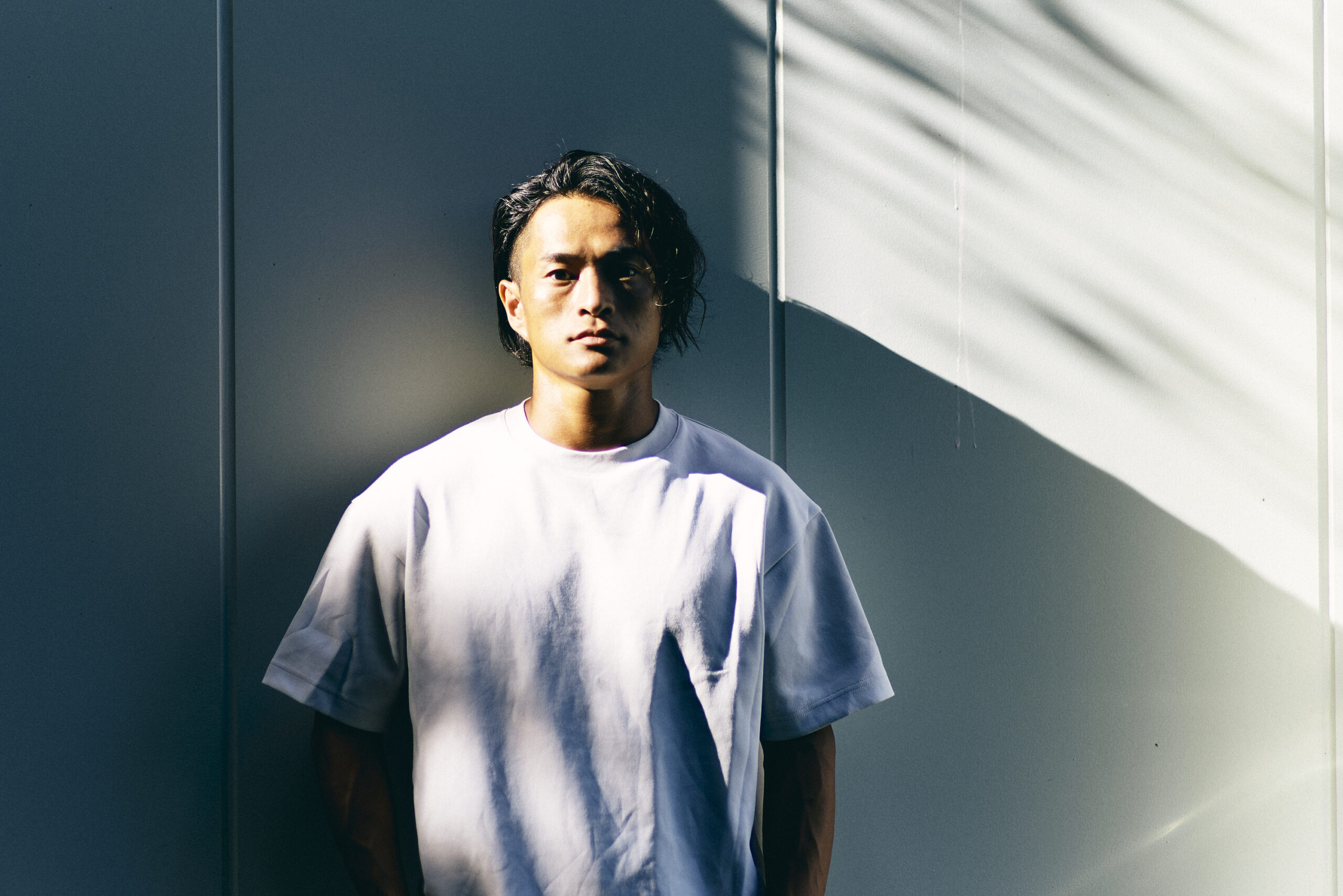
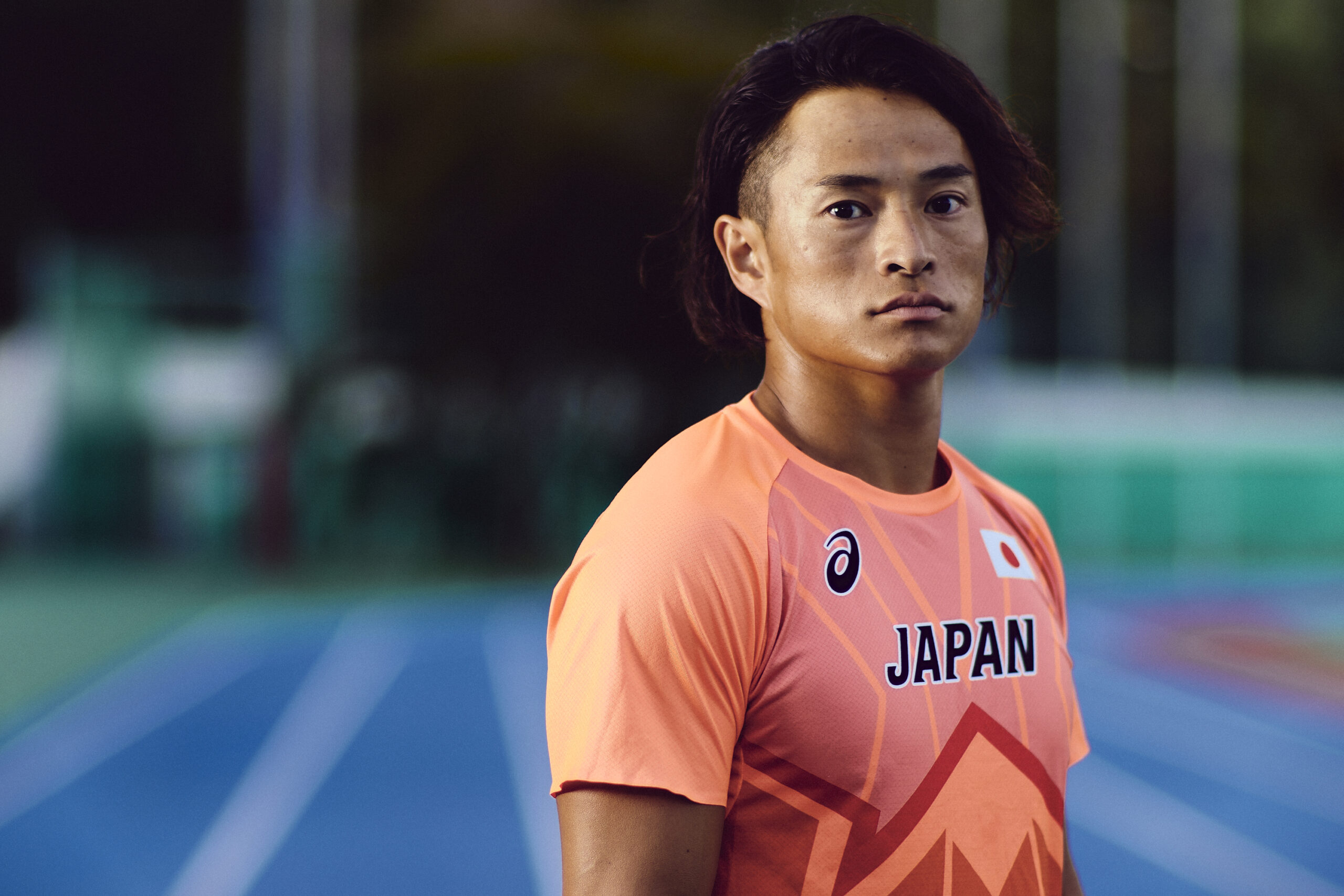
Takuma Sasaki
Born in 1993 in Aomori prefecture. Japan Deaf record holder in the Men’s 100m and 4x100m relay.
Graduated from Morioka School for the Deaf and Sendai University. Currently, he is on an athlete employment contract and is a faculty member at his alma mater, Sendai University.
He started track and field at Hachinohe School for the Deaf Junior High School, and won first place in the 100m, 200m, and 4x100m relay at the National School for the Deaf Track and Field Competition in his third year of high school at Morioka School for the Deaf. Starting with Sofia 2013, which he competed in while attending Sendai University, he has participated in three consecutive Deaflympics.
At the Samsung 2017 Games, he ran the anchor leg for the 4x100m relay and contributed to winning the gold medal. At the Caxias do Sul 2022 Deaflympics, he won gold medal in the 100m.
Started athletics out of necessity. The more I run, the more I felt grateful.
――Please tell us how you got started in track and field.
The only extracurricular activity at the school for the deaf was the track and field club. So I had no choice but to join the track and field club, and that’s how got started in track and field. At first I didn’t take it that seriously, but when I was in my third year of junior high school, I went to the Tohoku Deaf School Sports Tournament and met some friends from Iwate there. I heard from a friend that my high school was holding a national athletics meet for schools for the deaf, so we promised to go and win medals together in the relay. That’s when I started working hard after that.
――How did your life change after discovering track and field?
The more I run and the more results I get, I felt the change within me. How can I make people smile, and how can I give them energy and courage. For example, when I achieve a personal best or win a medal, I receive a congratulatory message from friends saying, “Congratulations, Takuma”. They say, “Takuma is trying his best, so I have to work hard too” or “Thank you for giving me courage and hope”. When I hear that, I feel a strange kind of power come to me. I think, “I will run again and get an even better result”, and that kept building up.
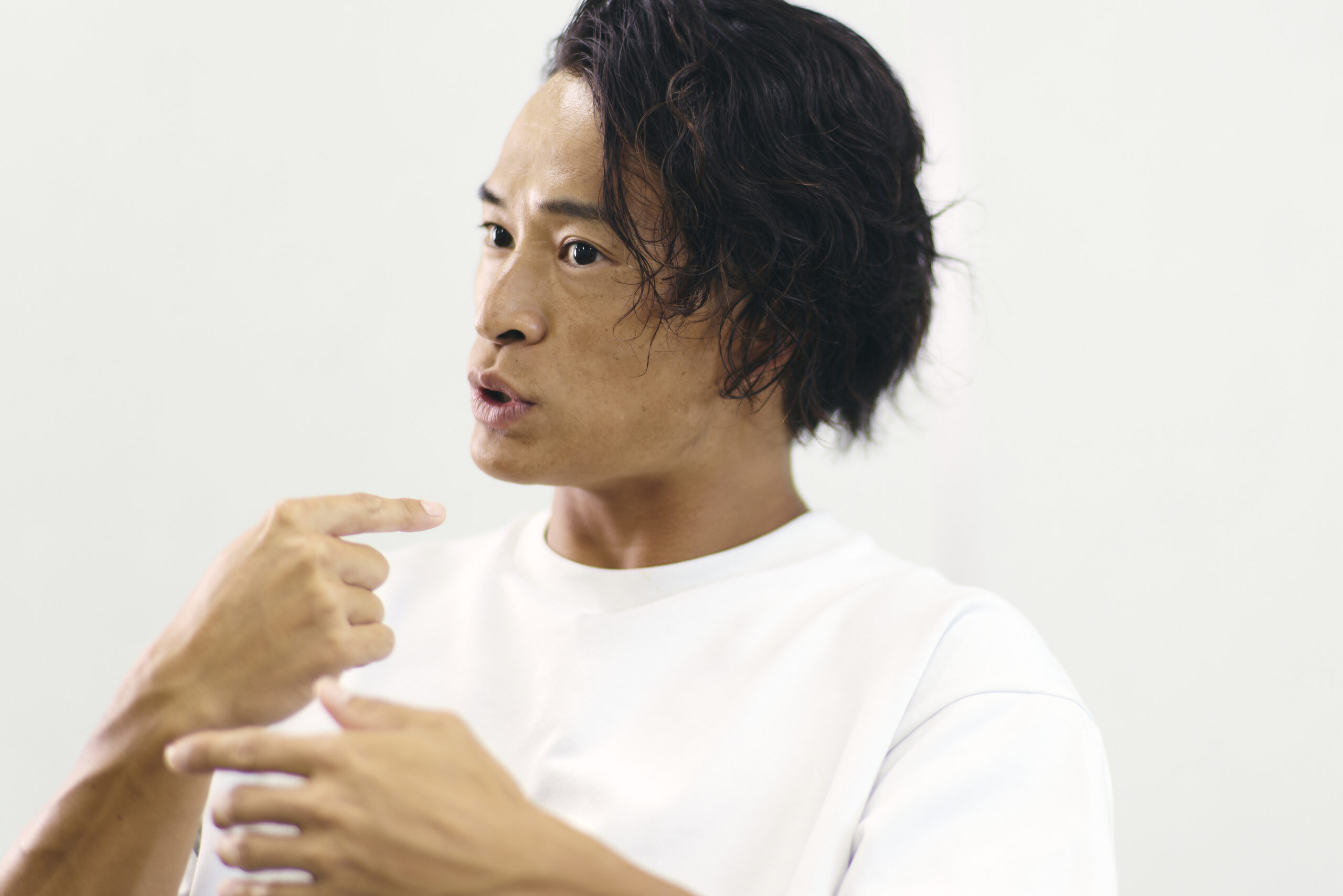
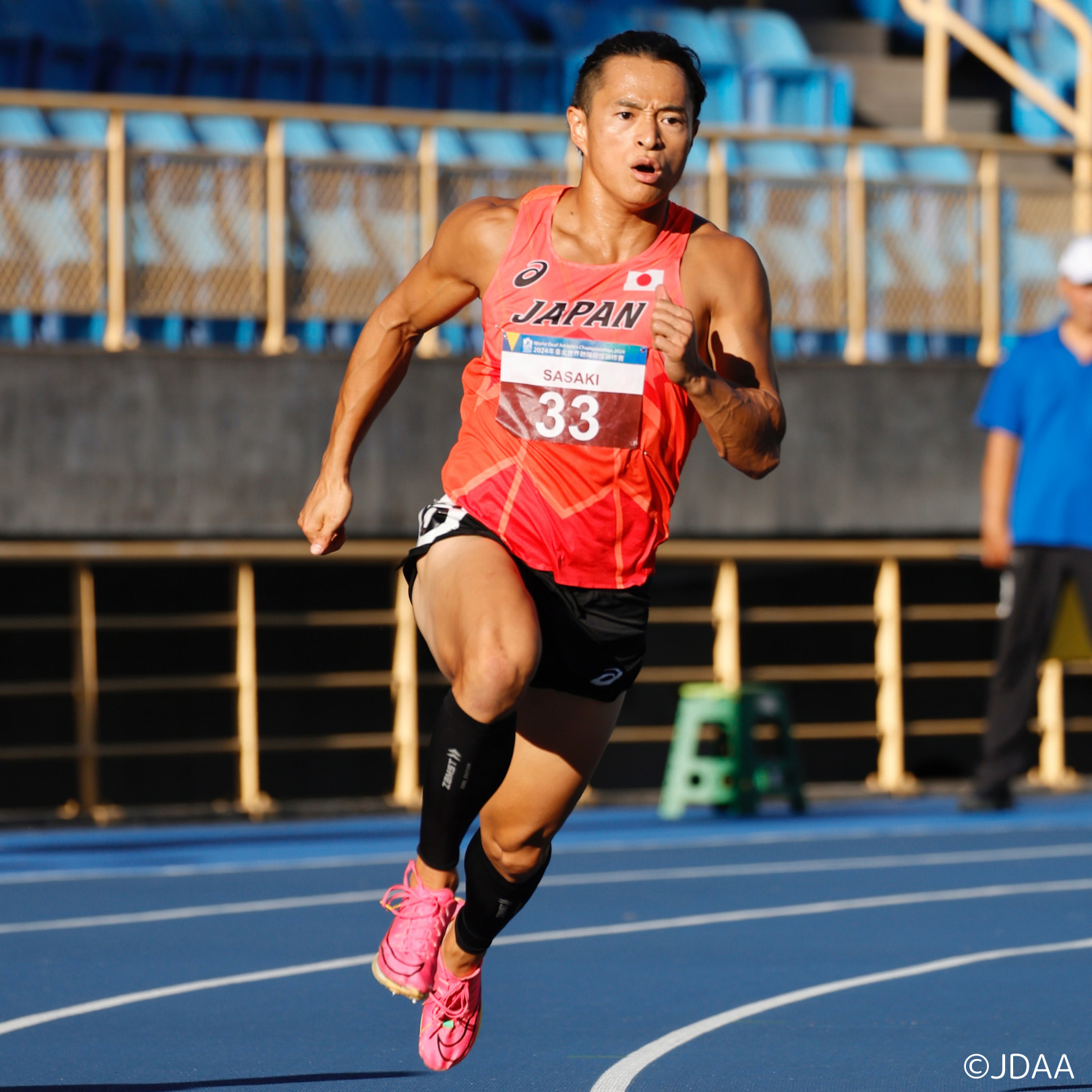
the more I receive support, more strange power comes out of me.
――Do you feel that the more you continue to compete, the more you grow as a person?
Yes. I feel very grateful. When I first started track and field, all I wanted to do was run with my friends. But now I can run with a feeling of “thank you”, and the more I compete, the stronger that feeling becomes. I actually felt this clearly when I won the gold medal in the 100m at the Caxias do Sul 2022 Deaflympics. The other moment was when I won the Aomori Championships, which was attended by hearing people, and was selected to represent at the National Athletic Meet. Although there were many people who could hear, a person who could not hear won and was selected to represent Aomori prefecture. This was meaningful to everyone involved with me including my sign language interpreter, my Deaf friends, my training mates, and my parents. I received many comments from people who said, “I realized that I can do it too” by winning against people who can hear.
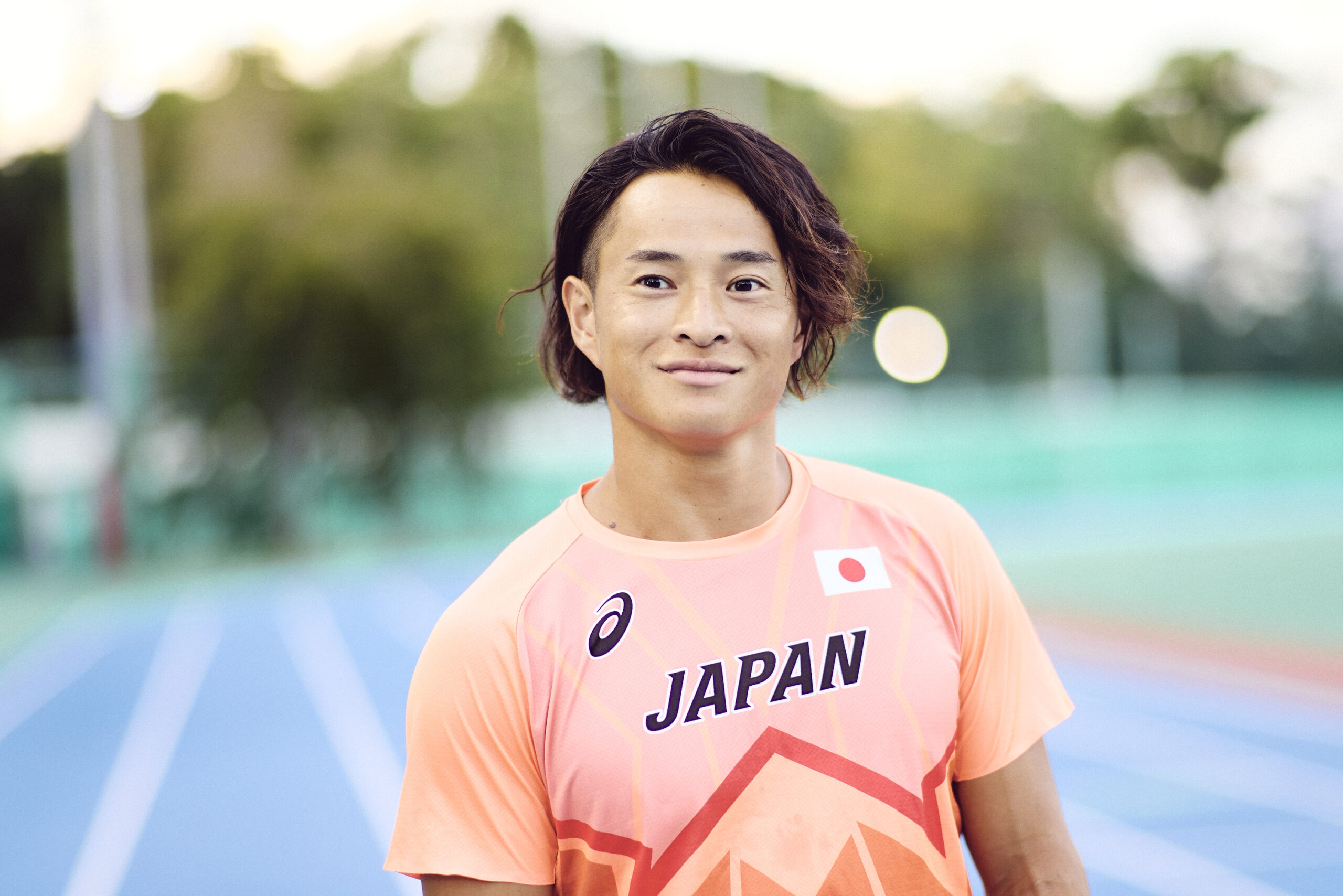
A new obstacle that appeared after participating in the Deaflympics
――When did you decide to “Aim for the Deaflympics”?
It was when I was a first year student in High School. In October 2009, the National Athletics Meet for Schools for the Deaf was held, and the Taipei 2009 Deaflympics was held one month before that. Masatoshi Morimoto, who won the Men’s hammer throw at the Deaflympics, was participating in the National Sports Meet for Schools for the Deaf. He was the only one who had an extremely large body and was wearing a jersey with the “JAPAN” logo on it. I learned about the Deaflympics for the first time when I saw that. When I looked it up on the internet, I found out that it was an international Olympics for Deaf people. That’s when a new dream was born.
――Then you participated for the first time at the Sofia 2013 Deaflympics four years later.
To be honest, I had mixed feelings. I had been suffering from repeated injuries before the tournament, and I continued to hold back until the day of the tournament. My anxiety was greater as I wasn’t able to practice much. But there were some good things as well, and I was able to learn about the world’s level for the first time. I participated in the 200m and 4×100m relay, and lost in the preliminary round for 200m. 100m is my specialty and I was watching from the spectator seats but the running and times of the Ukrainian athletes were amazing. I felt a huge gap in techniques between them. It was my first experience watching the 100m final on a big stage, and I got goosebumps. I wanted to be on that stage myself, and I felt a desire to beat the athlete who won the gold medal. I was really happy to be able to participate in the Sofia 2013 Deaflympics.
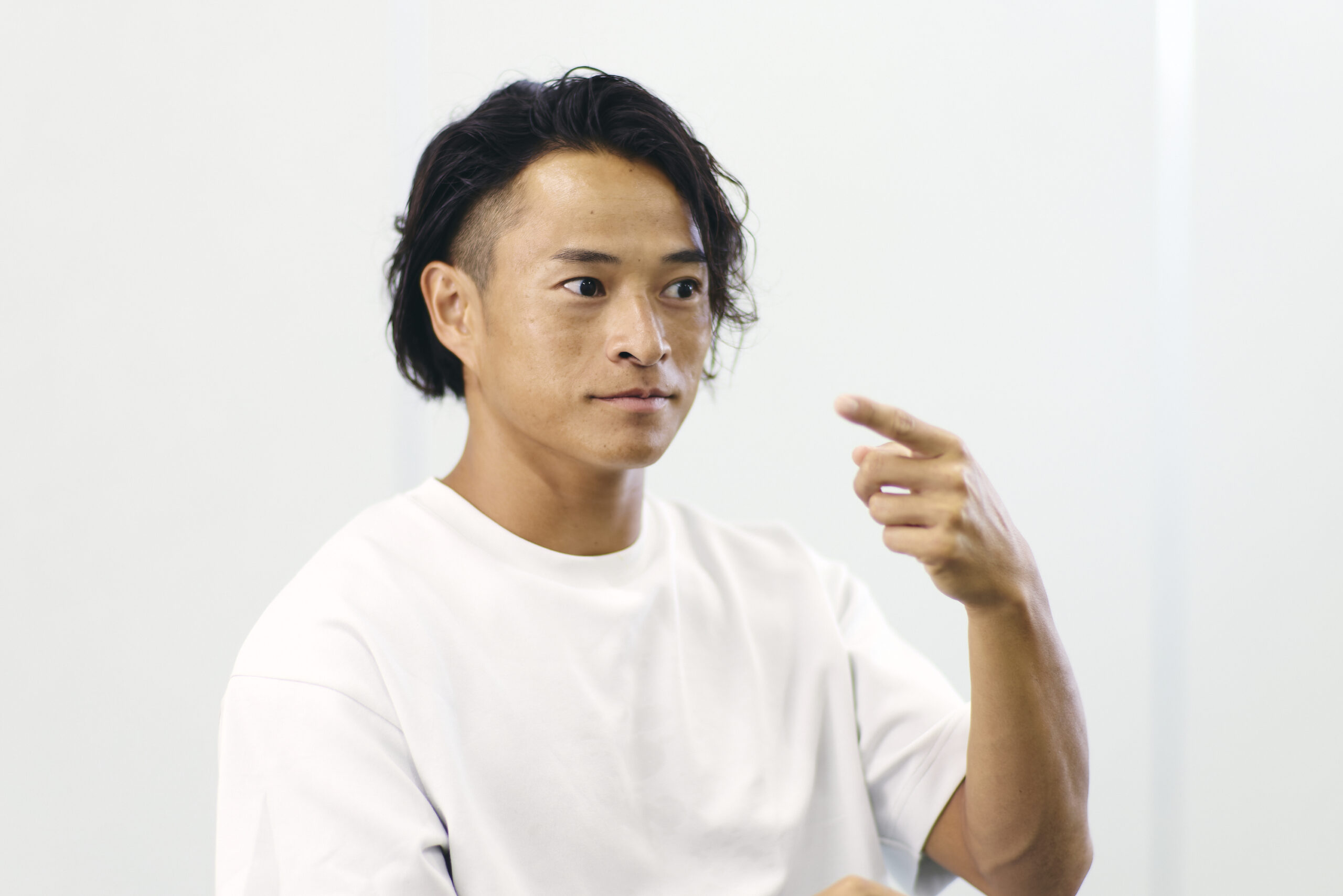
that he first participated.
――You won gold medal in the 4x100m relay at the 2017 Samson Deaflympics.
I ran the anchor leg, and the moment I found out I won the gold medal, I was so happy. I finally became number one in the world at the Deaflympics. However, while there was such joy, it was not my real dream. My dream was to “Achieve gold medal in the 100m”. I was seventh place in the 100m at the 2017 Samson Deaflympics, and felt frustrated. I was able to win gold medal in the relay, but there was a new obstacle. I felt that I had reached my limit by thinking that “I don’t think I can run any faster than this” even though I was practicing blindly. That’s when I met my new coach, Eiji Natori. It was in March 2018. When I saw Mr. Natori instructing the students, I felt an aura that said, “If I learn from this coach, I might win a gold medal”. So I asked Mr. Natori directly, “Please be my coach”! and I was able to receive instructions from Mr. Natori.
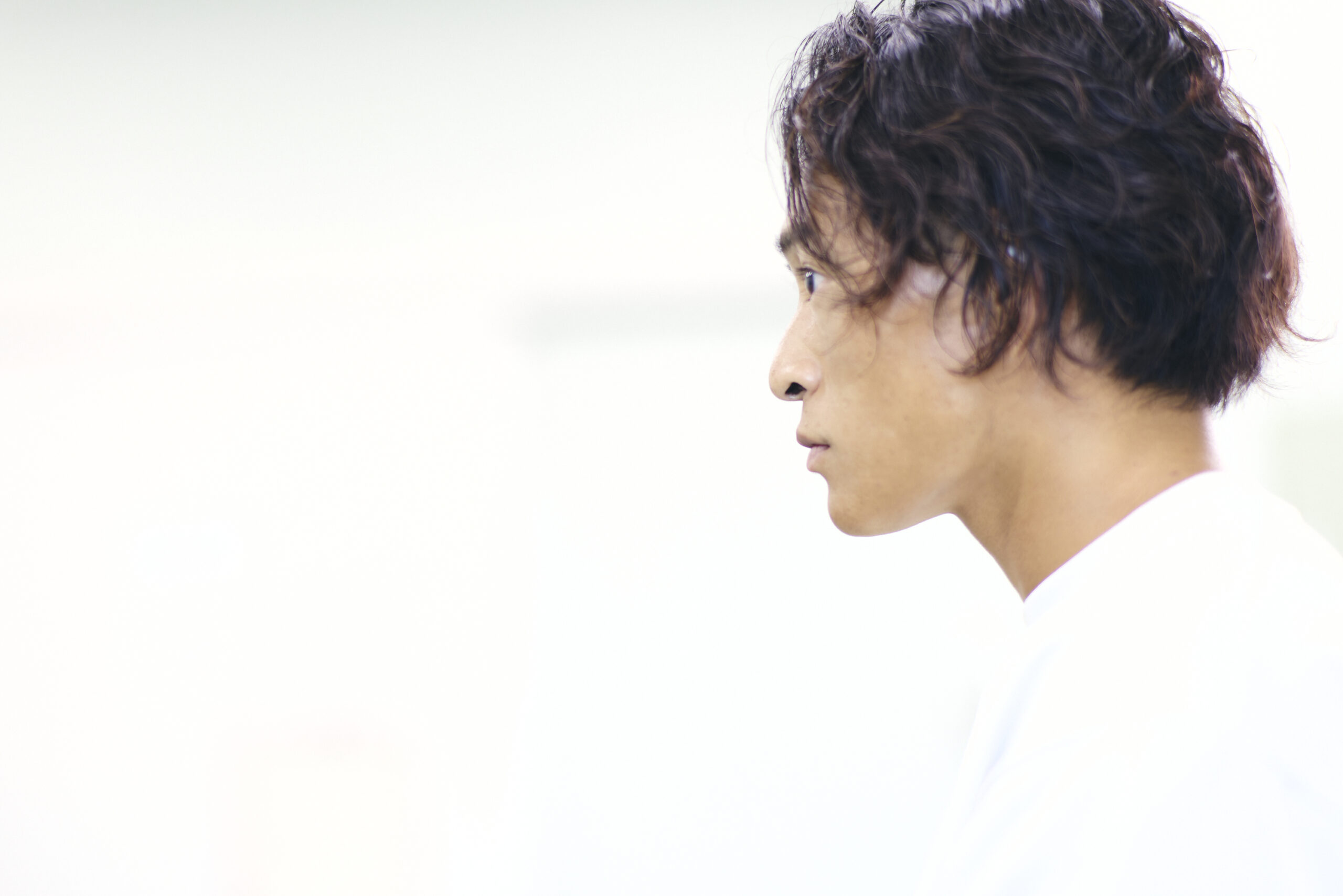
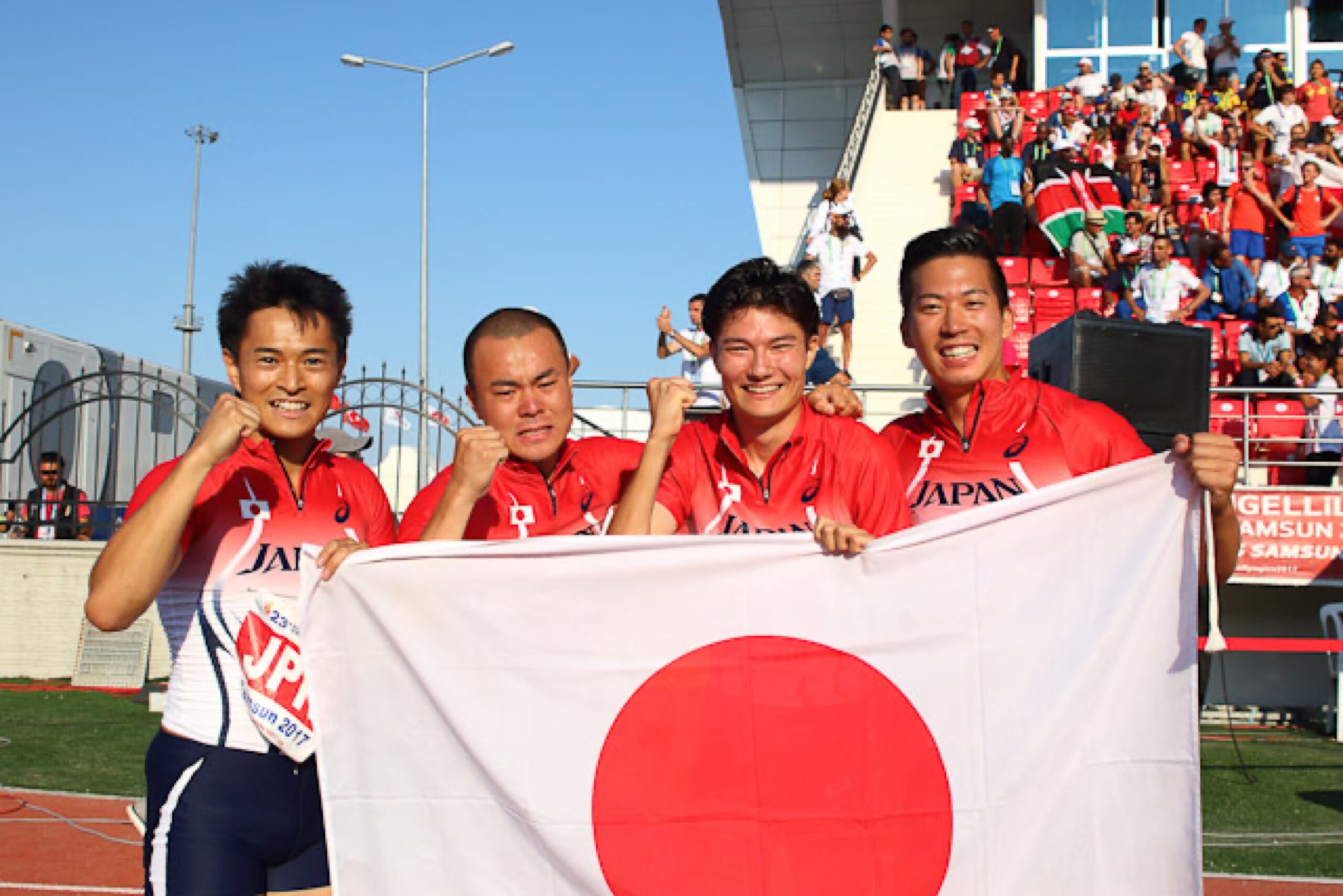
However, it was not his “real dream”.
The 100m final got me into the zone thanks to the words of my mentor
――What did you change after Mr. Natori became your coach?
一Communication part has changed the most. Mr. Natori’s expressions are very easy to understand when conveying what he wants to say. There was a lot of advice that was simple and easy to visualize, such as leaning your body to the left and right when running, and a lot of deep technical instructions beyond that. I was able to learn about how to solve my own deficiencies and issues, and I was able to realize this myself. As a result of these days, my times improved, my physical strength increased, and my mental health became more stable. I have a strong bond with Mr. Natori because we have worked together for a long time. Thanks to that, I was able to gain confidence.
――How did you change mentally?
If I didn’t receive any instructions from Mr. Natori, I don’t think I would have won the gold medal in the 100m at the Caxias do Sul 2022 Deaflympics. My overall time in the semifinals was 4th place, and I wasn’t sure if I would get a medal, but as I was warming up for the finals, Mr. Natori spoke to me. His words was “Believe in what you have been working hard on. You can do it Takuma”. When I heard that, I said to myself, “That’s true”. I took on the challenge with the feeling, “I have no choice but to do it. I’m the one who will win”.
Then, when I stood in the lane and the yellow starting lamp that read “Set” flashed, the surrounding scenery turned bright blue, as if I were in a blue sky. When I started, I saw a beautiful little sun, and the more I ran, the sun got bigger, and around 80m, in the lane to my right was the Sofia 2013 Deaflympics 100m champion. He was actually wearing a white and blue uniform, but it looked like a dazzling yellow-green color. It was his uniform from 2013 Sofia Deaflympics. While I was moved by the incredible scenery that lasted even a second, I worked hard to beat him and become the best in the world, and that’s why I have supported myself with the thought, “I will be the one to win in the end!” I felt like the many people who supported me pushed me and gave me strength. I still remember it vividly. That’s how I got into the zone.
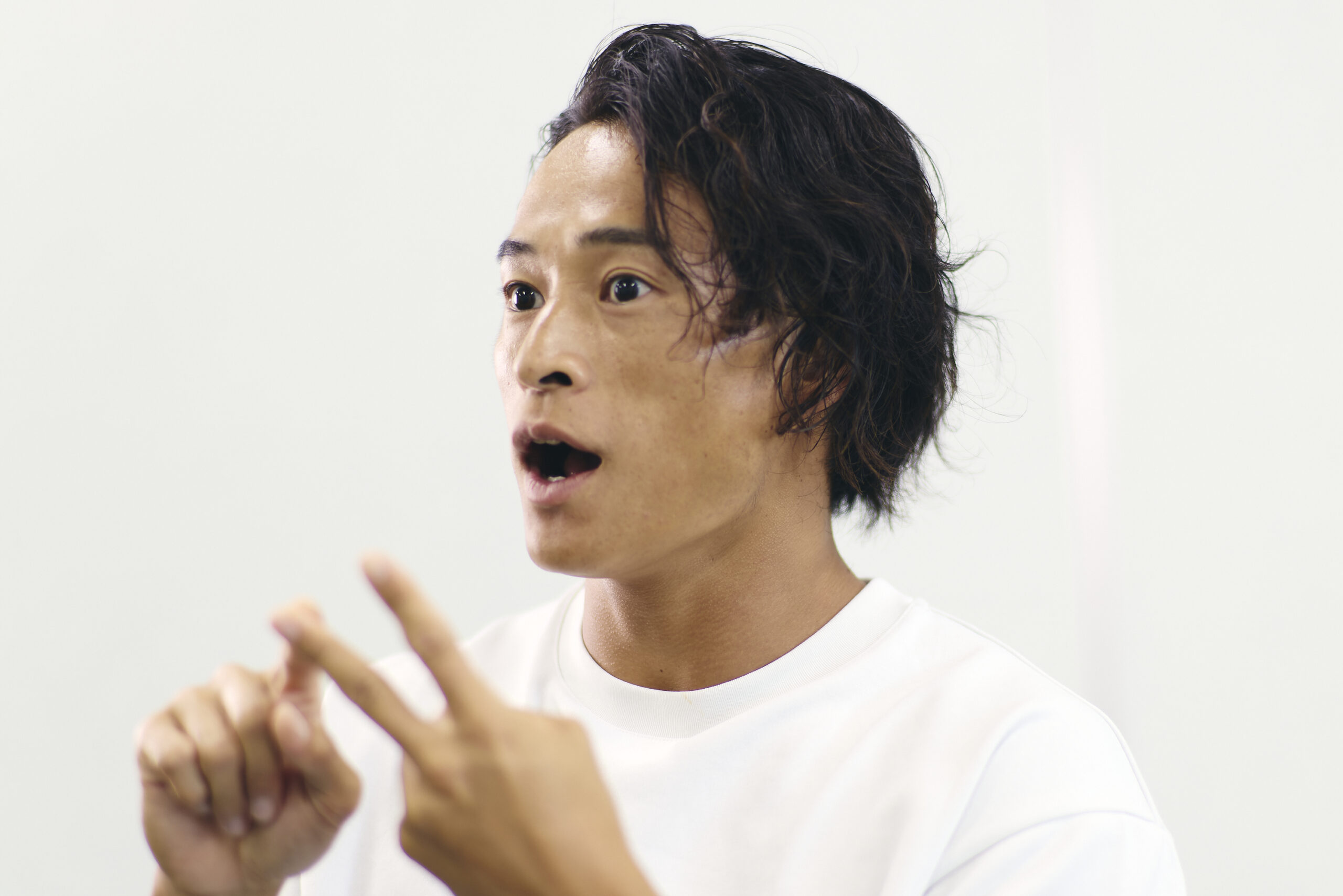
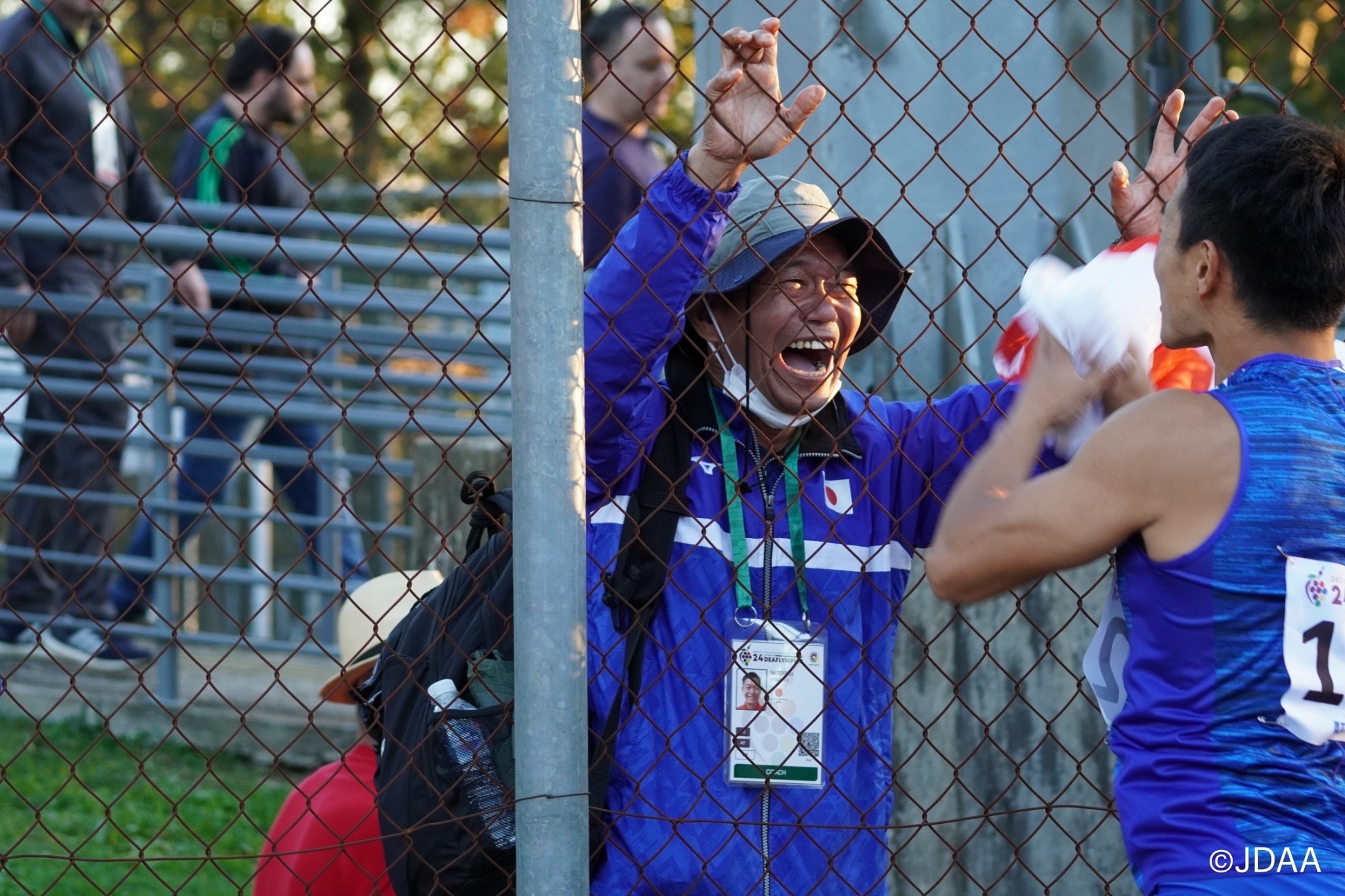
whom I met at a time when I felt I was at my limit.
――What were your emotions when you won gold in the 100m at the Caxias do Sul 2022 Deaflympics?
I had dreamed of it for a long time. I learned about the Deaflympics in 2009 and competed for the first time in 2013 and lost. I was able to win gold in the 4×100 relay in 2017, but I felt frustrated in the 100m. I wanted to win gold in the 100m, so I practiced hard and finally reached the goal. All my dreams came true. I felt a tremendous sense of accomplishment.

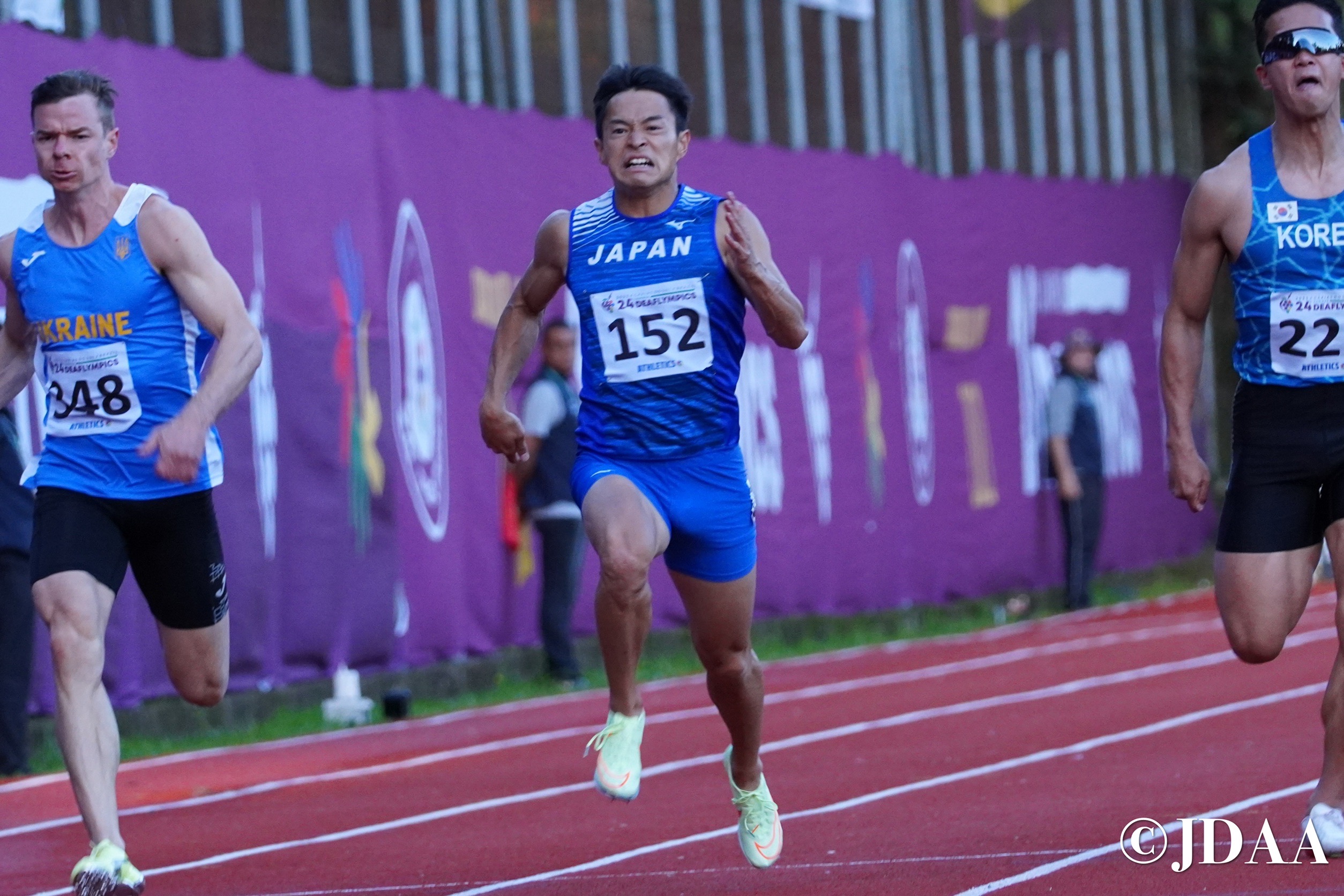
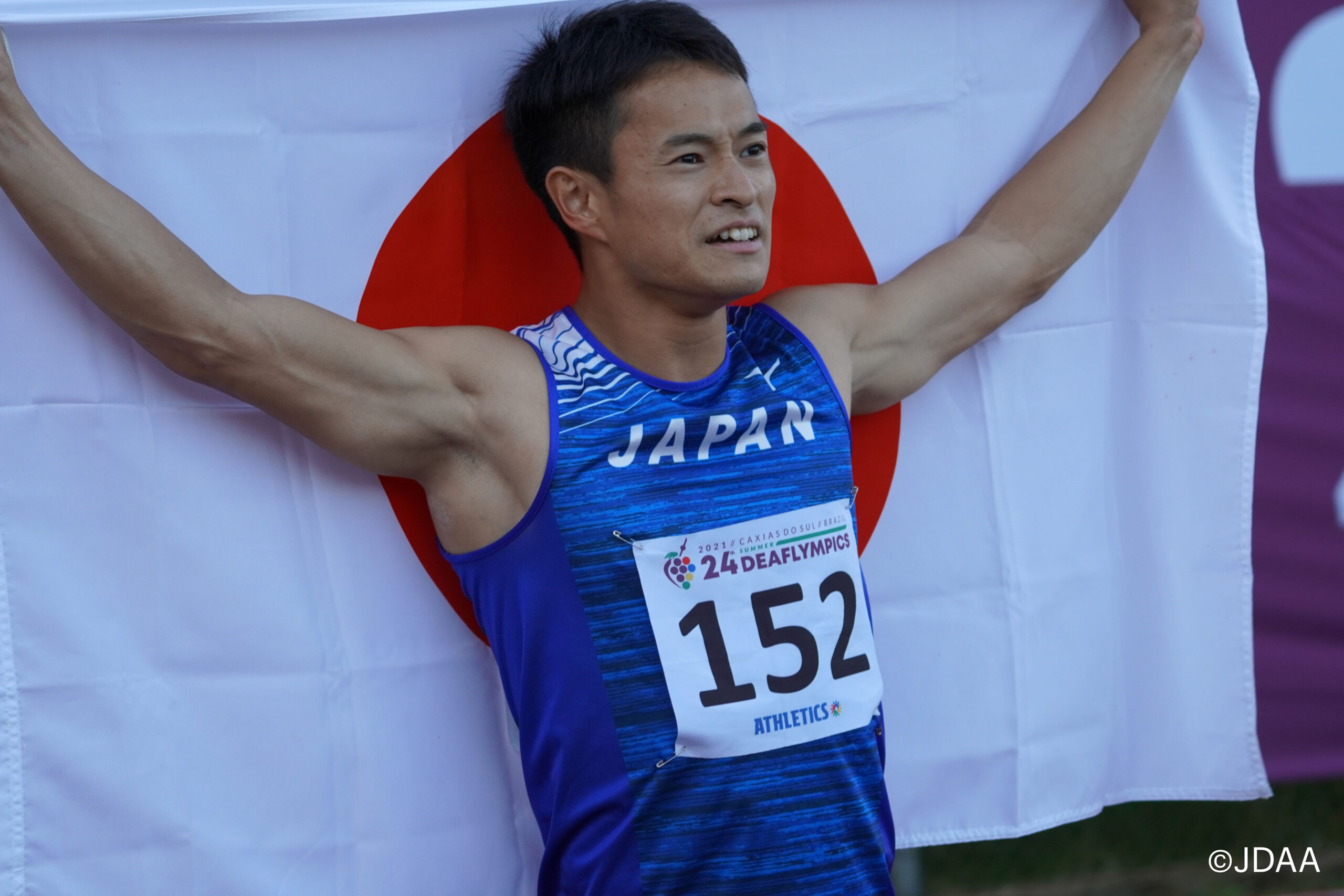
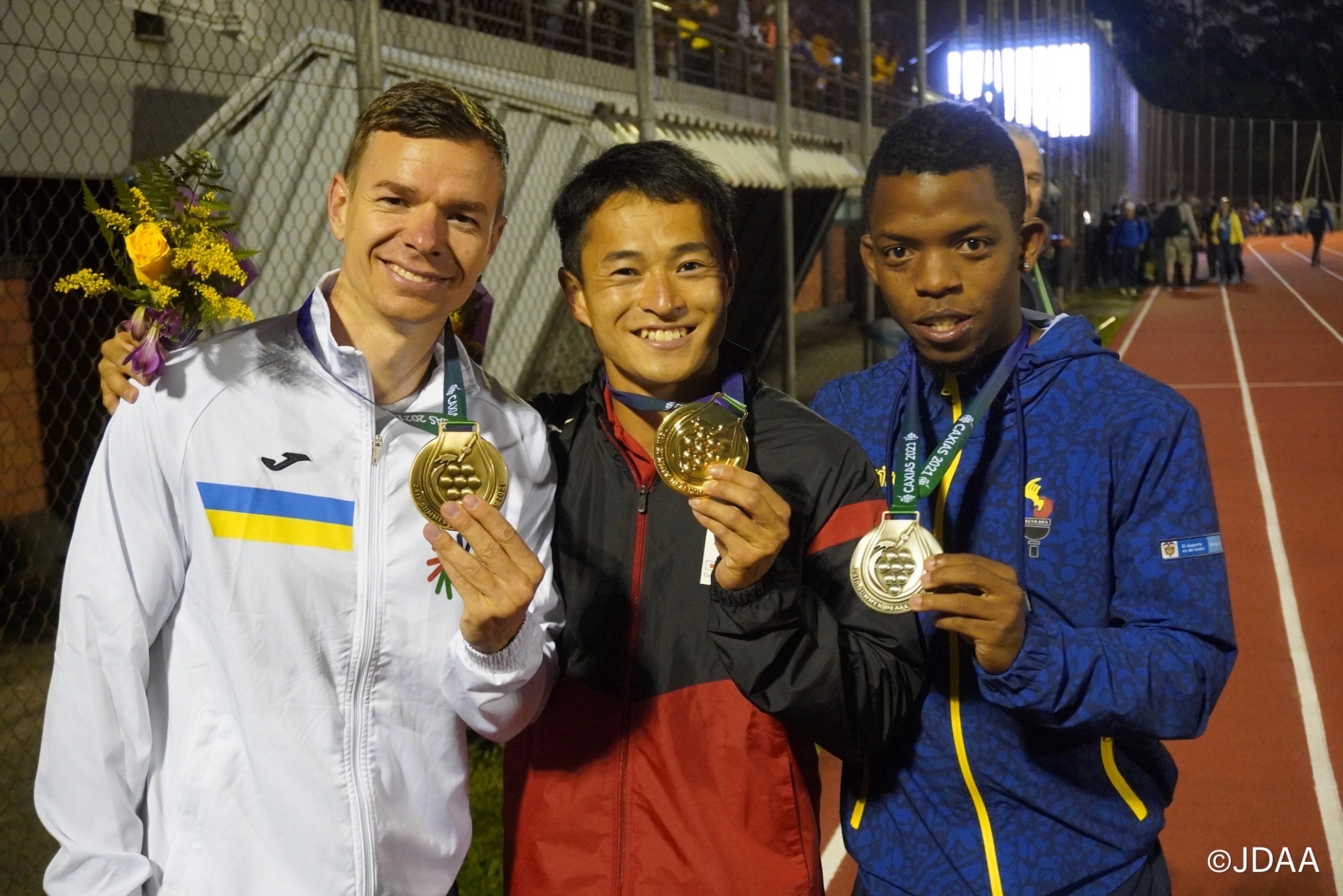
He achieved a dream that he had dreamed of for a long time.
However…, after a while, I lost track of my dreams and didn’t know what to aim for next. I had a hard time getting motivated, and there were days when I couldn’t concentrate on practicing… That’s when I received voices of support from everyone around me. That voice made me realize that I can give energy to everyone by running. I used to chase my dreams, but now I want to show everyone how hard I work. That changed to my dream.
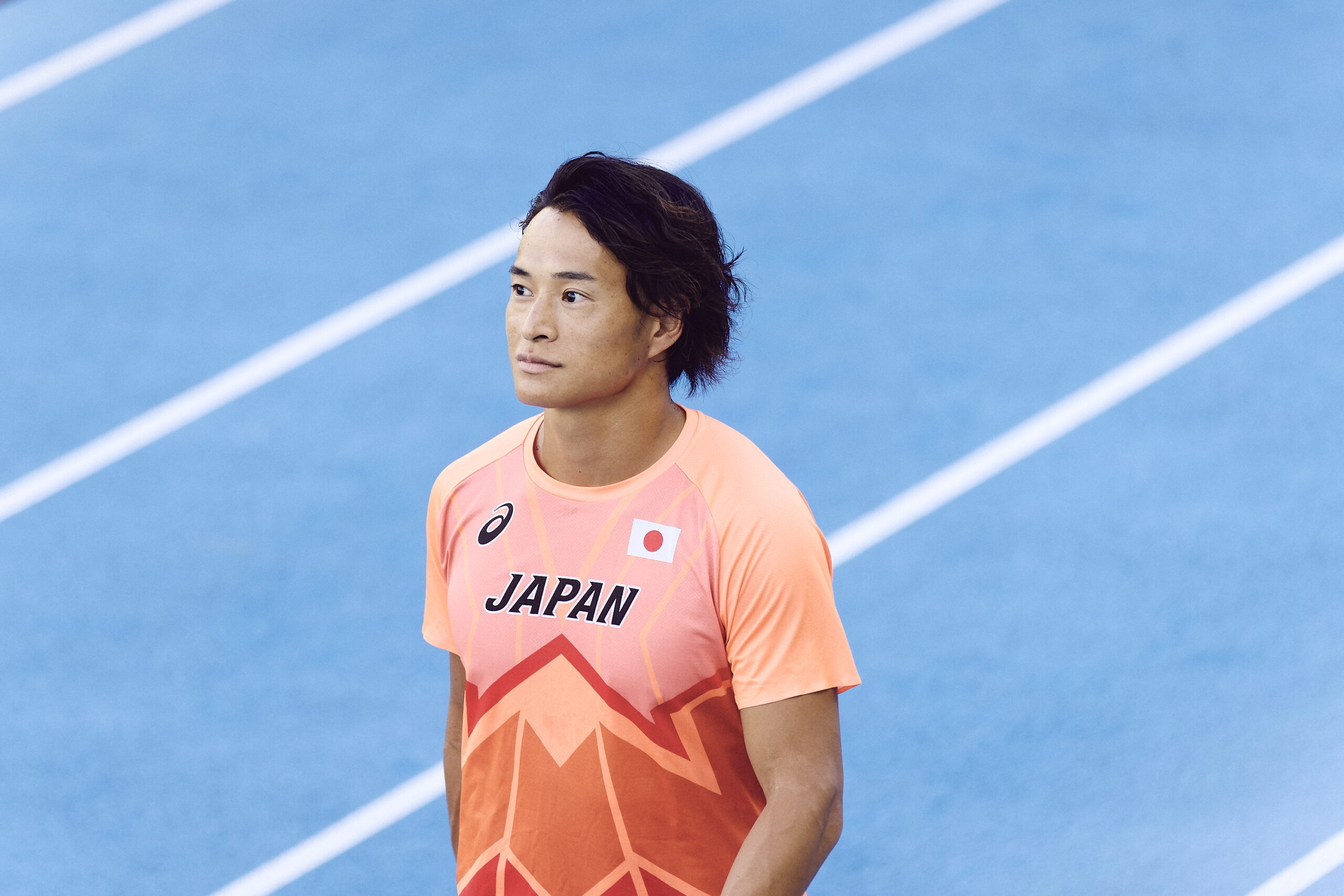
“World Deaflympics Record Updated” and “Triple Crown Winner” in Tokyo
――Last October, you represented Aomori Prefecture in the National Athletic Meet for the first time as a short-distance deaf athlete.
There were many famous athletes. I can tell that their “powers and techniques are different” just by watching them. However, once the race started, I ran with the feeling that “I had no choice but to do my best”. I was really frustrated when I lost in the preliminary round. But because of that experience, I started thinking about how I could win. I will believe in the instructions provided by Mr. Natori… Mr. Natori won three consecutive Japanese championships when he was young. If I believe in those words, I can catch up with those who can hear and win. I have that feeling in myself.
――You broke the world deaf record and won gold medal in the 4x100m relay at the World Deaf Athletics Championships held in July this year. On the other hand, you finished 5th in the 100m and lost in the semi-finals in the 200m.
The fact that my 100m result was not good was a source of motivation. After winning the Caxias do Sul 2022 Deaflympics, I didn’t have any rivals and I lost motivation. That’s why I decided to participate in a tournament for people who can hear and do my best there, but there were still some limits. Their level was so high that even if I tried to catch up, I wasn’t able to catch up. It was difficult to stay motivated…
However, losing the Deaflympics gave me a new rival. Now I have a strong desire to beat the Columbian athlete (Gian Marco Andrade Mosquera). Losing the Deaflympics gave me strong motivation to compete in the Tokyo 2025 Deaflympics.
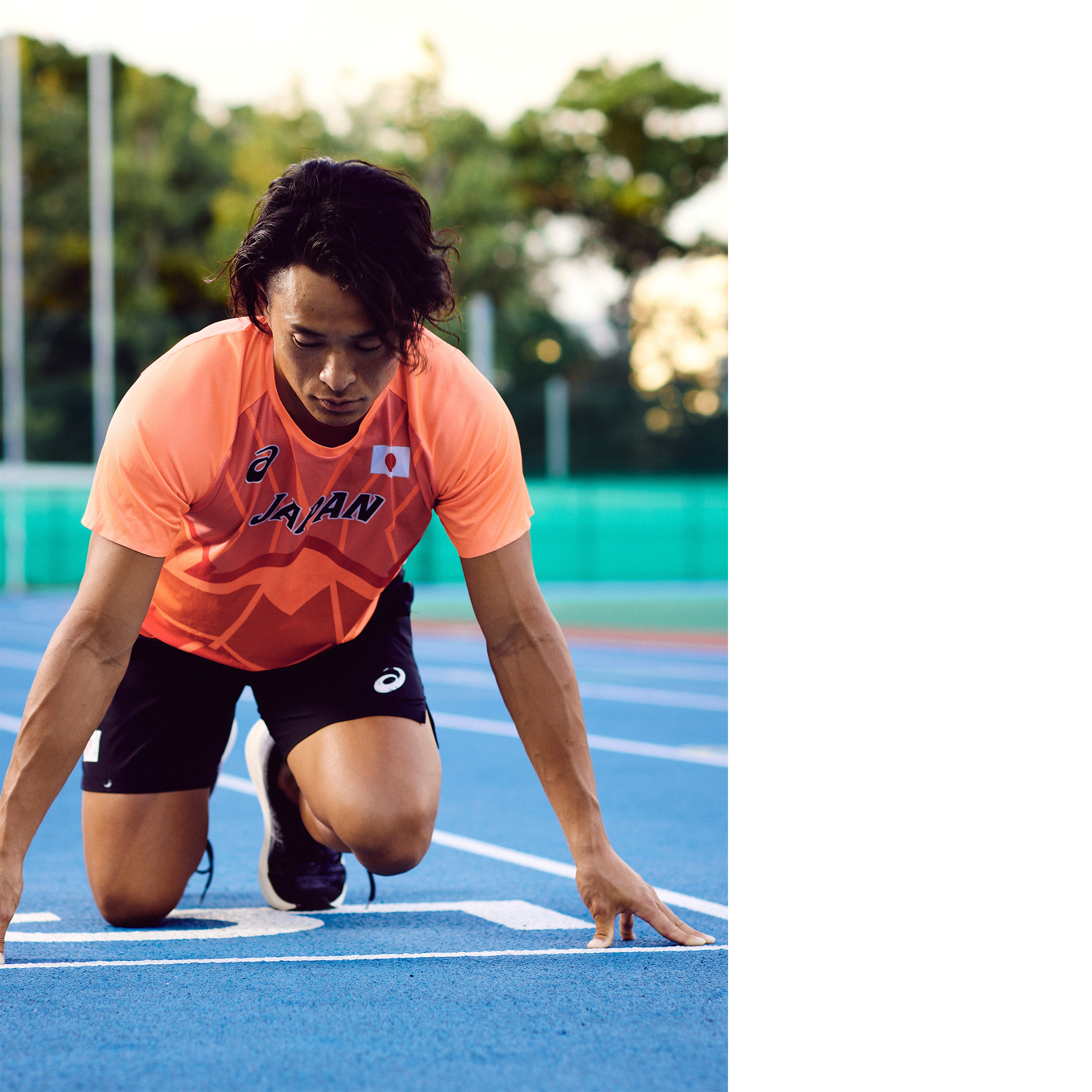
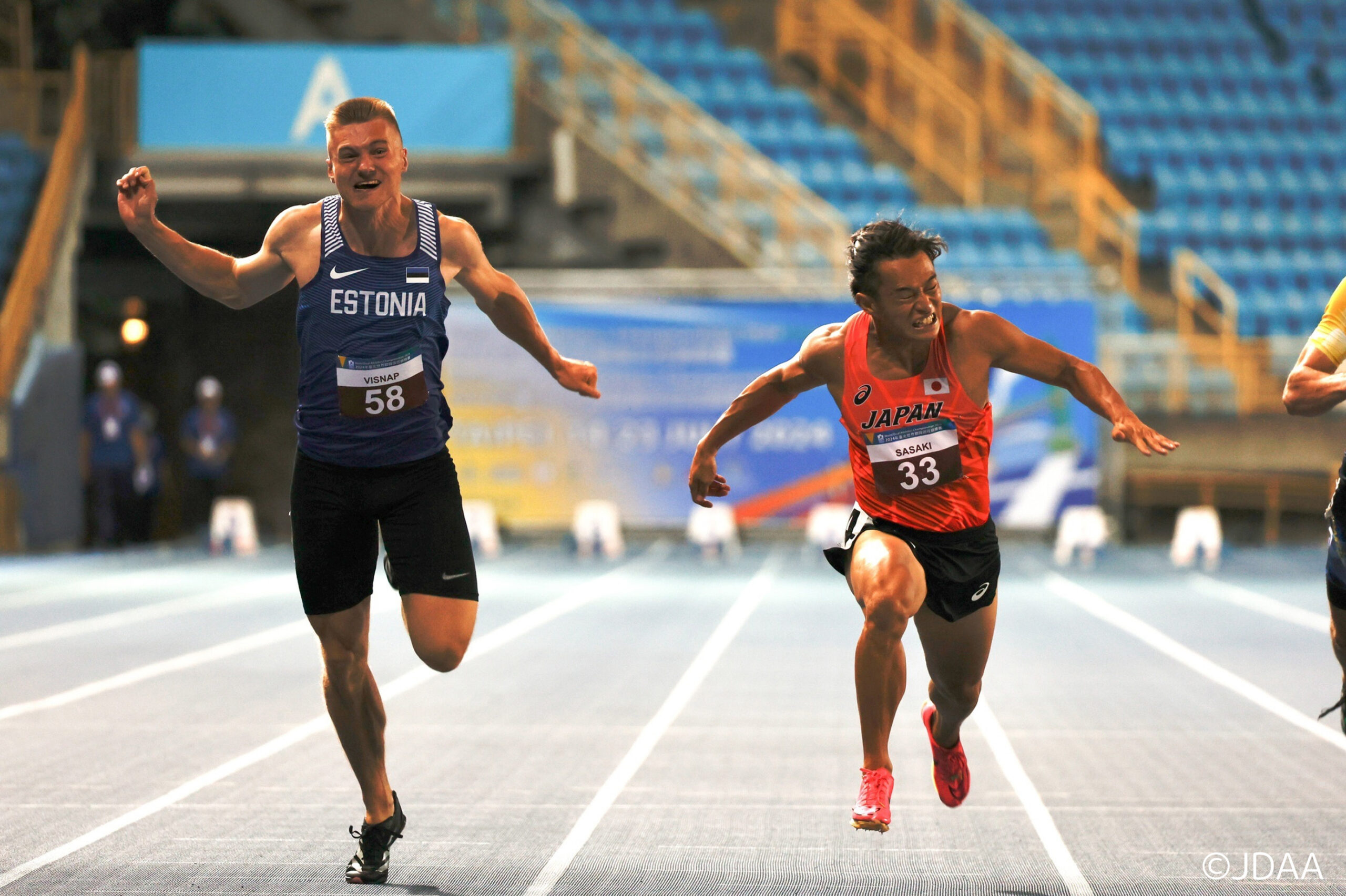
I feel that losing this tournament will lead to a good result at the Tokyo 2025 Deaflympics.
――What kind of place/stage is the Deaflympics for you?
The Deaflympics is special. In high-level tournaments, if the conditions are poor, you won’t be able to get good results or records. But when it comes to the Deaflympics, you can achieve good results even in poor conditions. It’s strange, isn’t it? The Deaflympics is a competition for deaf athletes, and everyone uses sign language. Sign language is my first language and I live by it. At a hearing competition, you will need someone to support you. But in the Deaflympics, you can work for yourself. I feel that’s special.
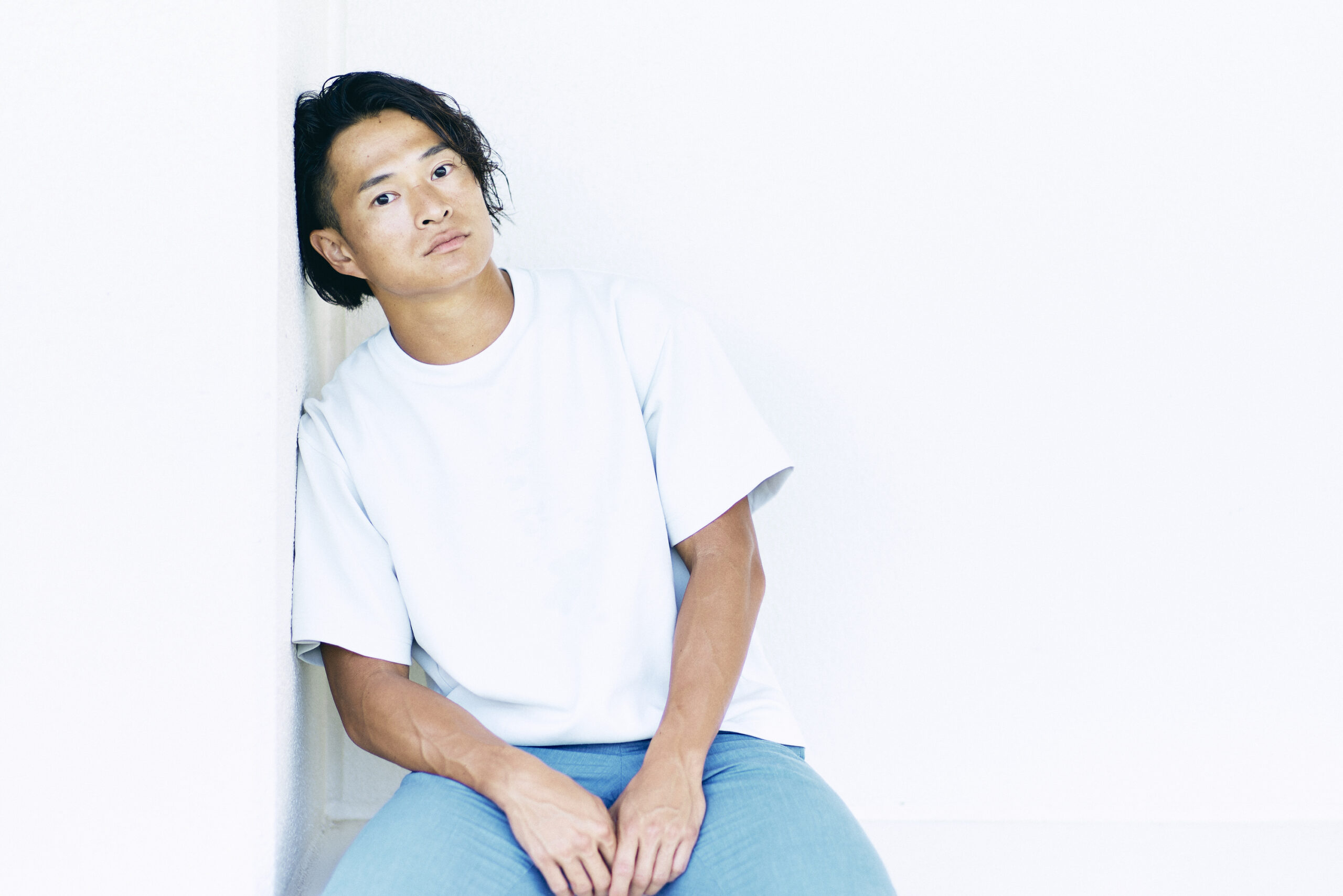
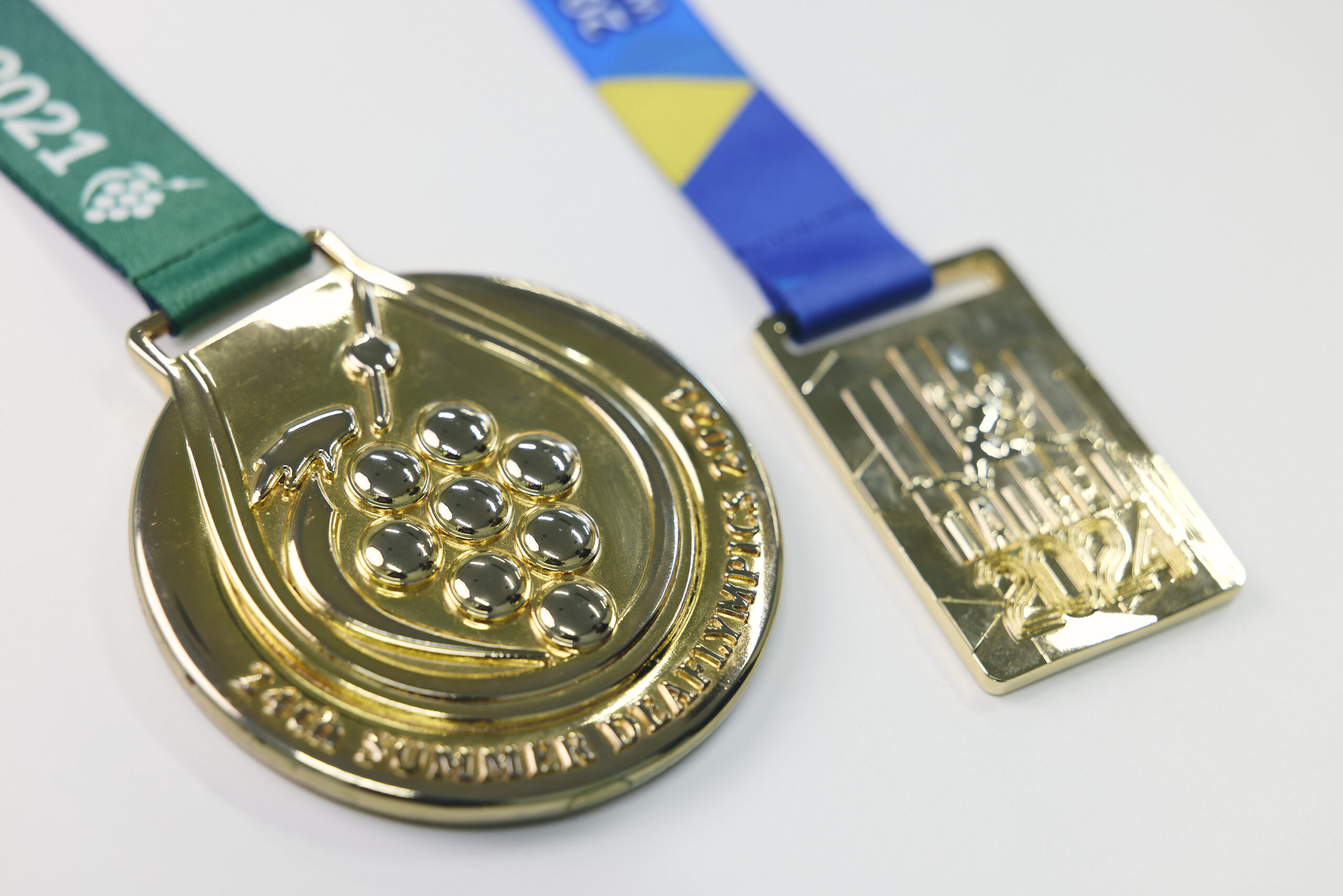
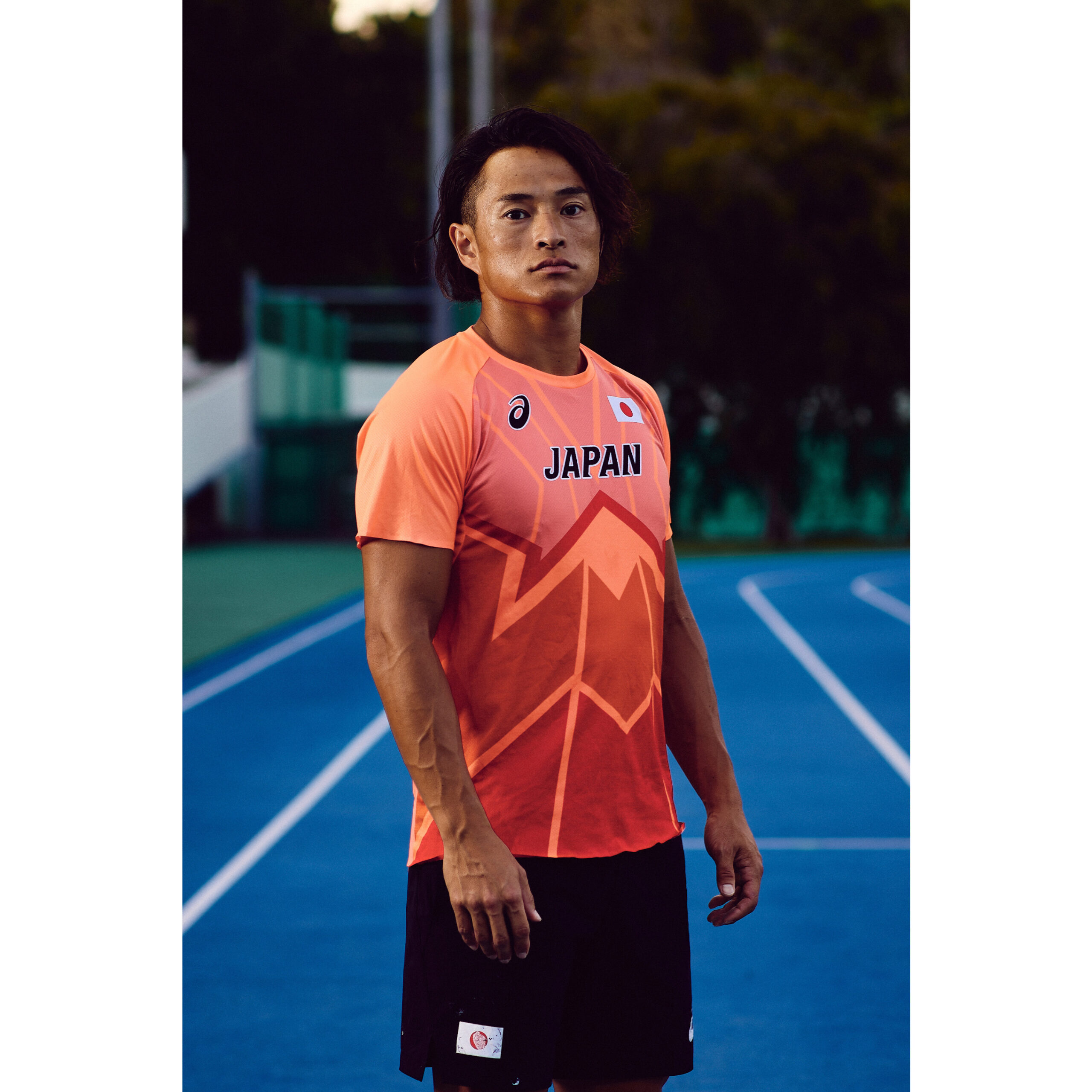
Have a personality to be overly addictive. My wife always gets mad at me.
――Please tell us your personal side from here. How do you often spend your holidays?
Now that I’m 30 years old, I don’t go out as often anymore. I get tired when I go out, so I often just relax at home. I watch movies on Netflix. I am into Gundam lately! I used to watch Gundam on TV when I was in elementary school, but there were no subtitles back then. I had to understand the contents just from the movement. But now (Netflix) has subtitles, so I’m happy to be able to understand the contents. I have watched the movie “Mobile Suit Gundam SEED FREEDOM”, which was released in January this year, five or six times.(laughs) I’ve also started doing Gunpla (Gundam plastic model kits and tools). I also play games and meet up with friends for dinner.

――What kind of games do you do?
I used to play “Mega Man Battle Network Series”. The series ranges from 1 to 6, and I’ve done them all. The other one is “Medarot”. When I was in elementary school, I didn’t understand the dialogue of Medarot, so I just enjoyed the battles, but now that I understand it, I have found a new way of enjoying it.
――How many hours a day do you play games?
Too much! My wife always gets mad at me saying “You are overly obsessed!”, because I play games in the morning, noon, and evening, and also before going to bed. There is a huge difference between switching on and off as I have a blood type B. I become overly obsessed in one thing. I used to go fishing and snowboarding before. I like repeating the same thing over and over again, and I’ve become obsessed to the Japanese manga series, “Attack on Titan” and have read it over and over again.
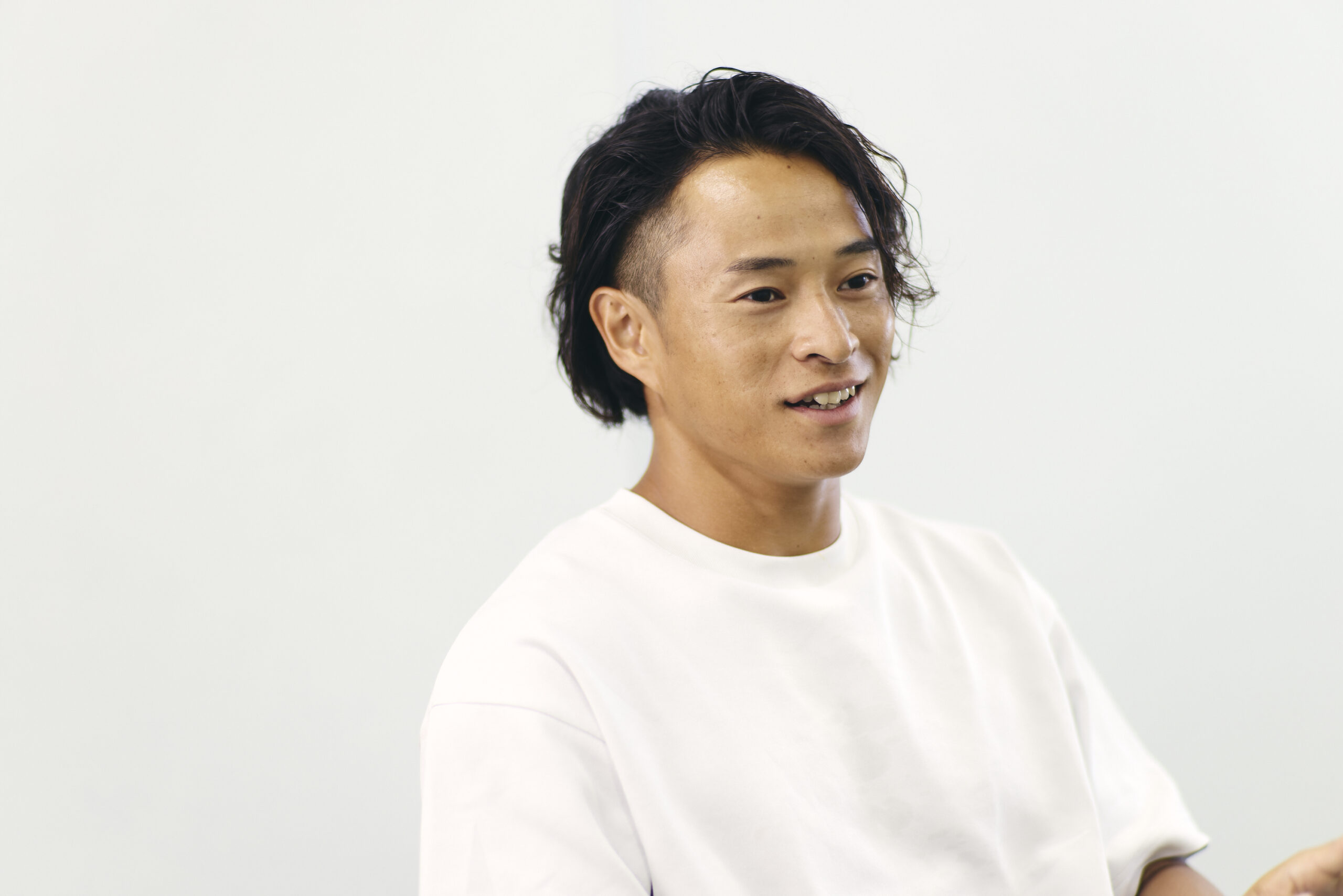
Plays games for a long time and “my wife gets mad at me” says with a laugh.
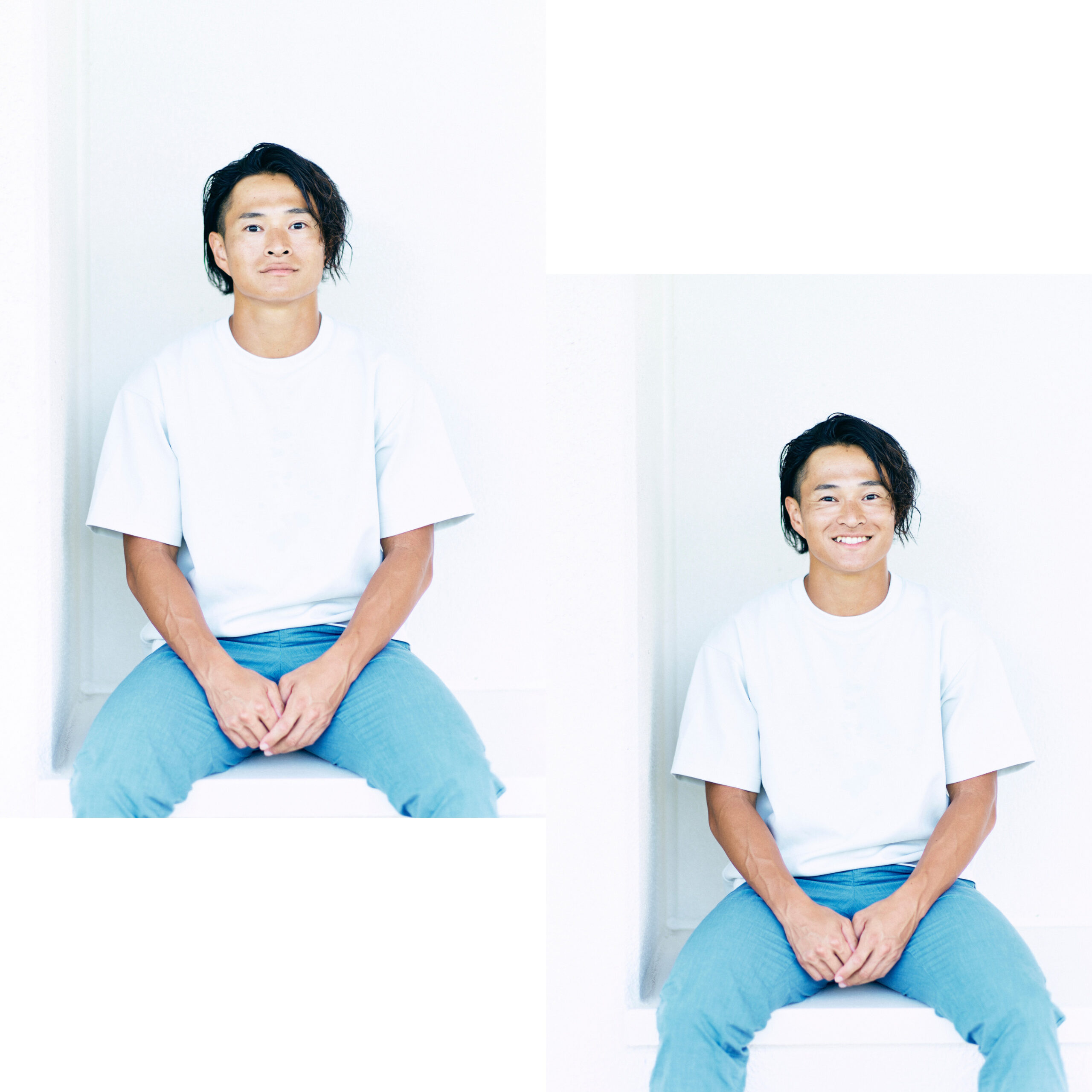
I don’t talk with anyone only before the 100m final
――Do you have any daily routine?
Saying greetings and chatting with someone. If I don’t say greetings on my own, I won’t feel energetic. I try to greet people proactively to cheer myself up. “Greetings” can be done in the same way whether you are abroad or in Japan. Saying “Hi” by raising your left hand. I even say “Hi” to coach Natori. I guess it means we are good friends regardless of our age. However, I think there are some parts that are difficult if you are particular about it. Before participating in the Deaflympics, I had a daily routine of always eating natto rice the night before the match, but you don’t find natto in other countries. I couldn’t live my usual life and couldn’t run comfortably. After that, I stopped being particular about things.
――Do you talk with athletes you will be competing with before the match?
Warming up is a place for interaction. Warming up is the only chance to talk. I have many foreign friends, and I try to call out to them before talking to them as much as possible. However, I will not talk only before the 100m final. I will not talk to anyone because I believe that “I will win”. I feel excited as I look at my rivals.
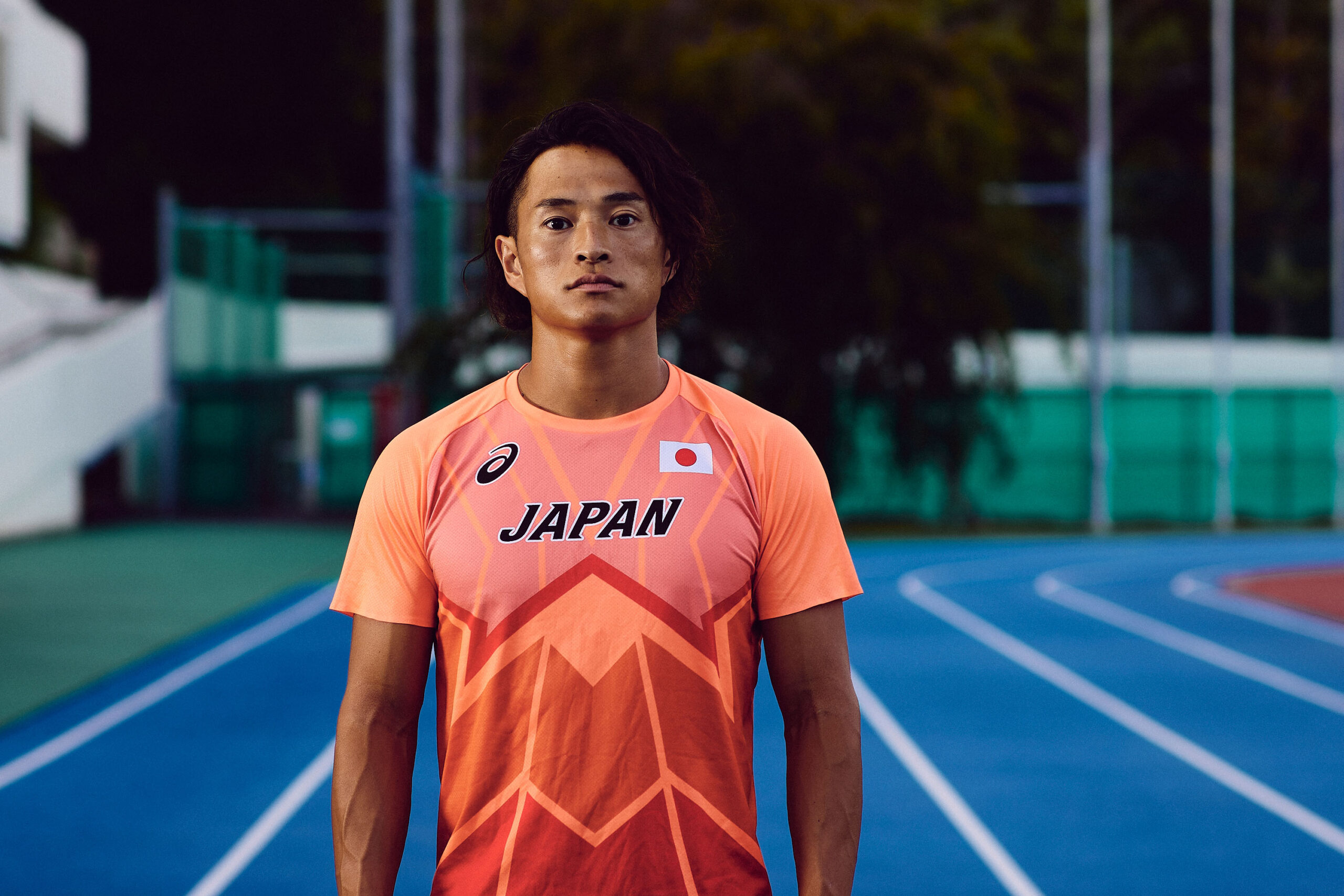
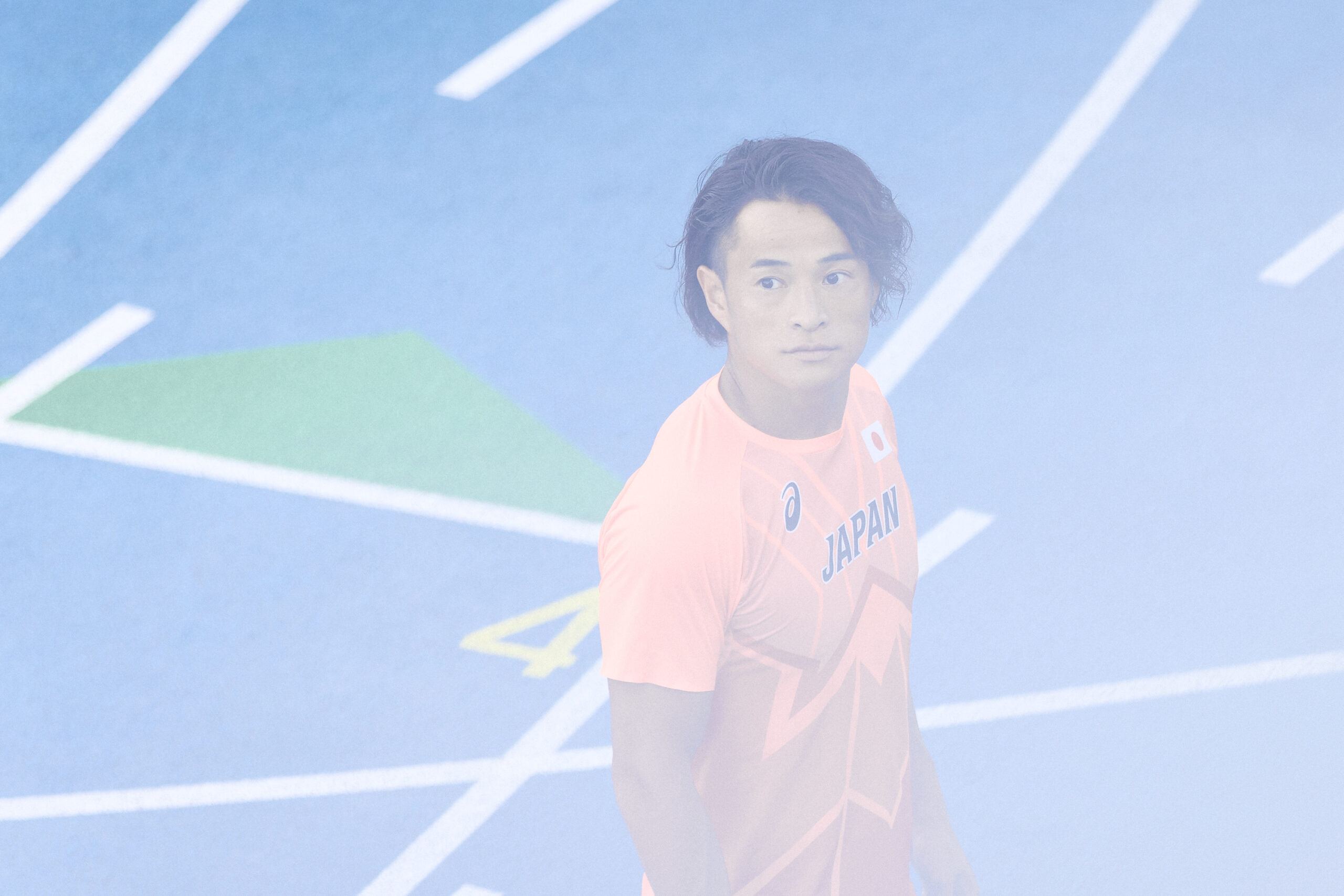
Maki Yamada competing in Japan, and Maki Yamada competing abroad are totally different person
――If you could recommend an athlete other than yourself, who would it be?
It would be Maki Yamada. We both become fired up just by meeting each other. His existence is huge. Another athlete would be the Columbian athlete who won gold in the 100m at the World Deaf Championships I mentioned earlier. He was second place when I won gold at the Caxias do Sul 2022 Deaflympics. He lost the World Deaf Championships, but I was so happy when he said to me, “I am who I am today because of you”. I gave my appreciation to him and he said, “Let’s run together again”. We’re rivals, but we’re also friends. I think we’ll be able to compete again on the Tokyo stage next year, so I’d like everyone to get to know him as well.
――What do you think is the charm of Maki Yamada?
He is a person who can really do what he sets out to do. Maki Yamada competing in Japan, and Maki Yamada competing abroad are totally different person. Especially at the Deaflympics. When it comes to 200m, Maki Yamada often runs in the 22 second range in Japan, but when he goes to other countries around the world, he runs the 21 second range. I think he is really a genius. The world championships, which have a high level of tension, clearly produce better results. In Japan, he runs on an extension of his usual routine. That is Maki Yamada. There are times when I feel like I can beat Maki in Japan, but when it comes to Maki in the world, I might lose.
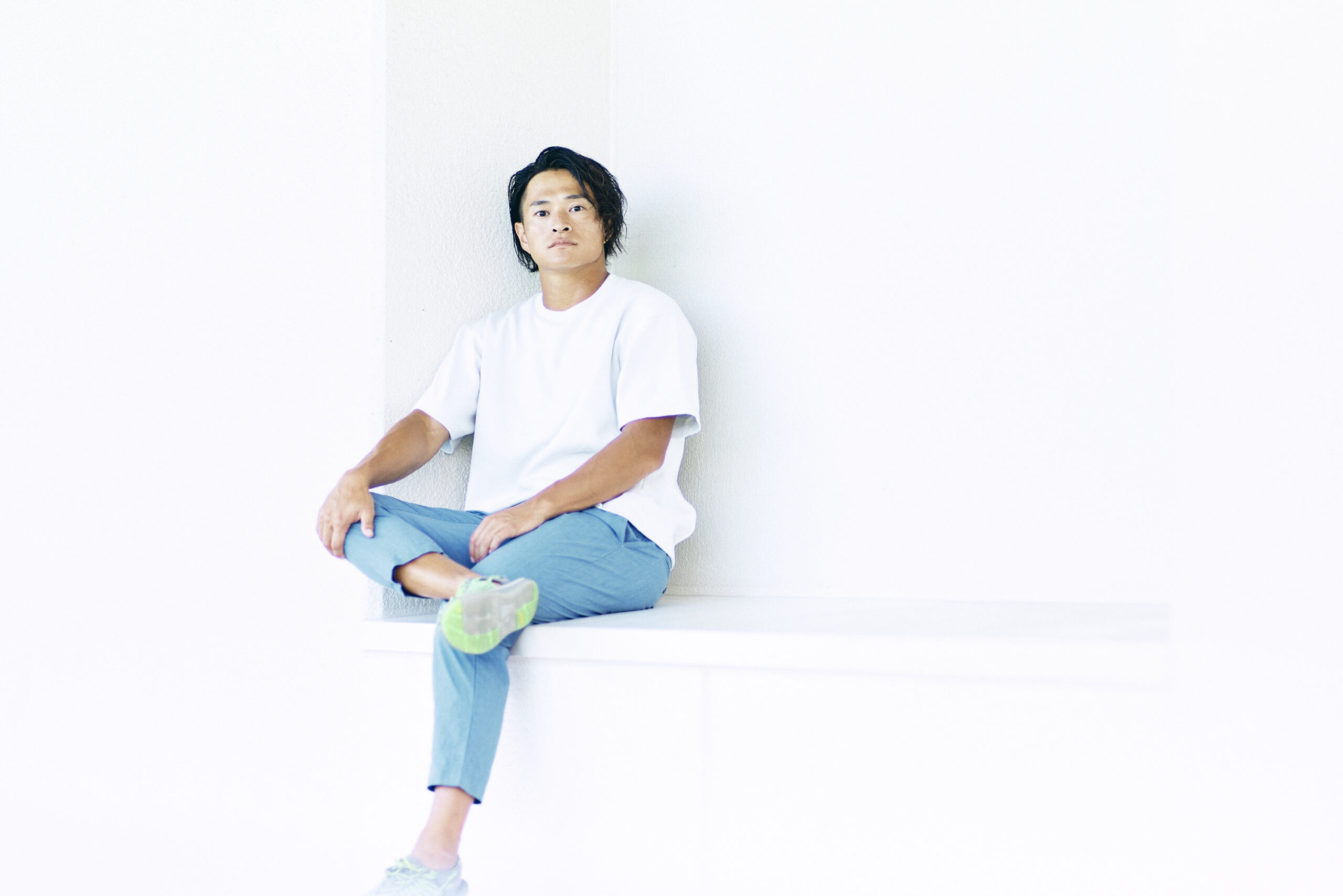
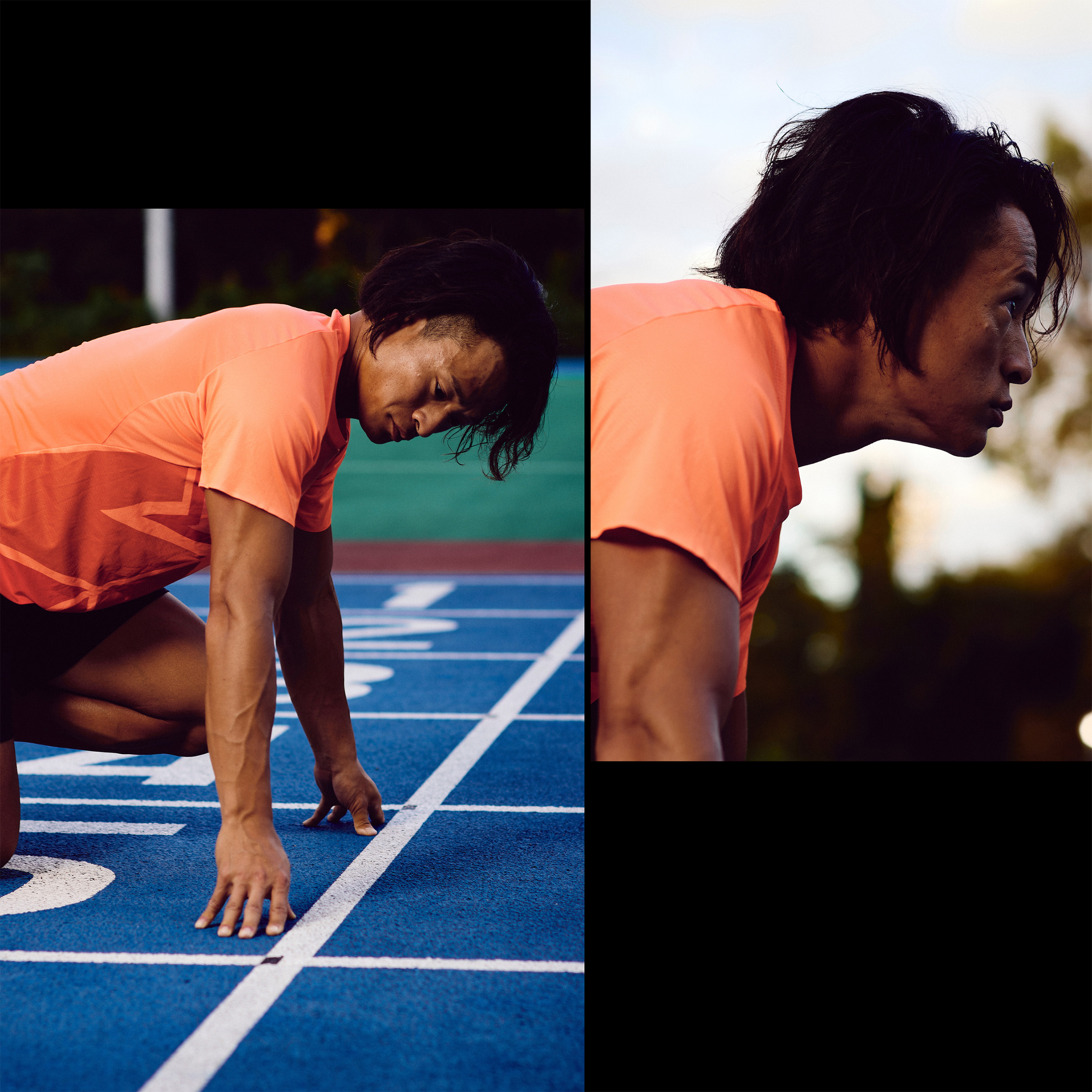
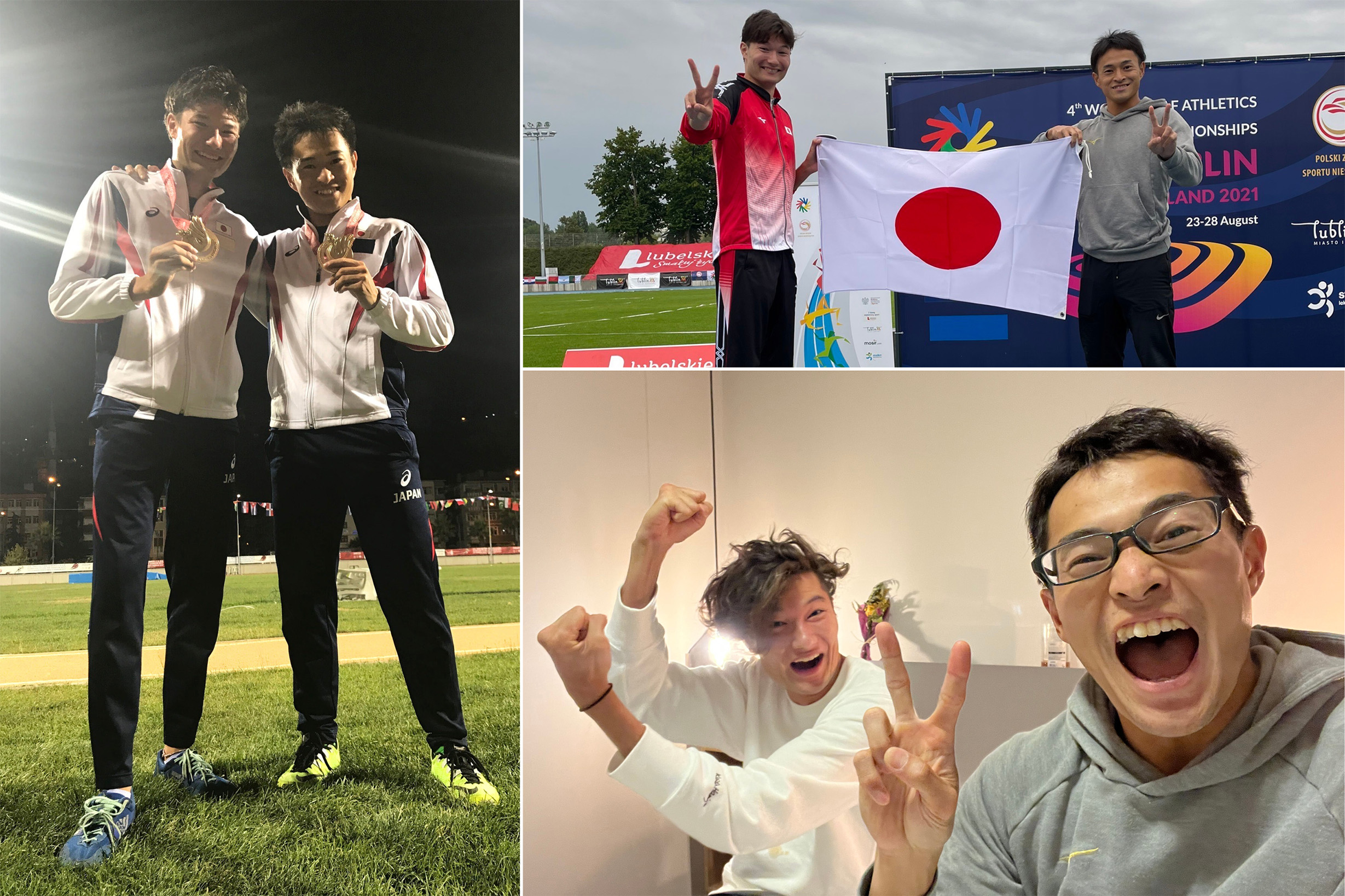
“Maki competing in the world is like a different person”, he praises.
Completing the Deaflympics with friends and rivals
――Are there any young athletes you are interested in?
Shota Hasegawa who is a junior at Sendai University and we always practice together. His nickname is “Shopuru”. Ten years ago, I met him for the first time at a sign language society when he was in grade 5 of elementary school. Looking at him at that time, I felt like I was looking at my old self. He had no dreams. Then I played a prank on him and he started playing pranks on me too. From then on, he started working hard on track and field. He continued to improve his skills and entered Sendai University. Before I knew it, he became really fast. He broke the 10 second stage for the first time in the 100m in the beginning of August. “Shopuru” is in third place in the 100m ranking of the Japan Deaf Athletics Championships this year. He may also be selected for the Deaflympics. What’s good about him is that he doesn’t give up. He has a strong feeling to win no matter what. So he is catching up to me more and more. His ultimate goal seems to be to defeat me.
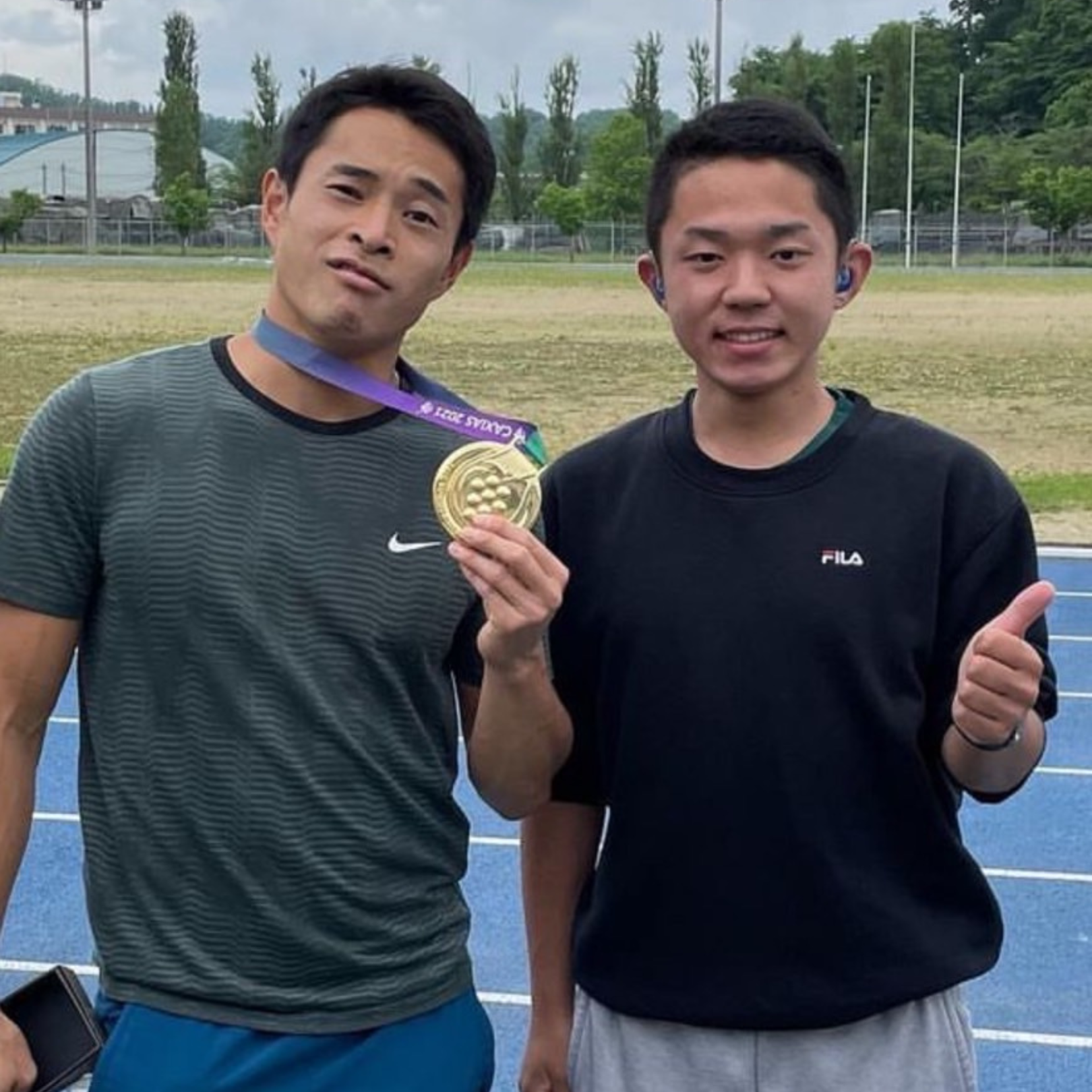
Shota Hasegawa who have started track and field following Takuma Sasaki has
grown to the point where he can aim to participate in the Deaflympics.
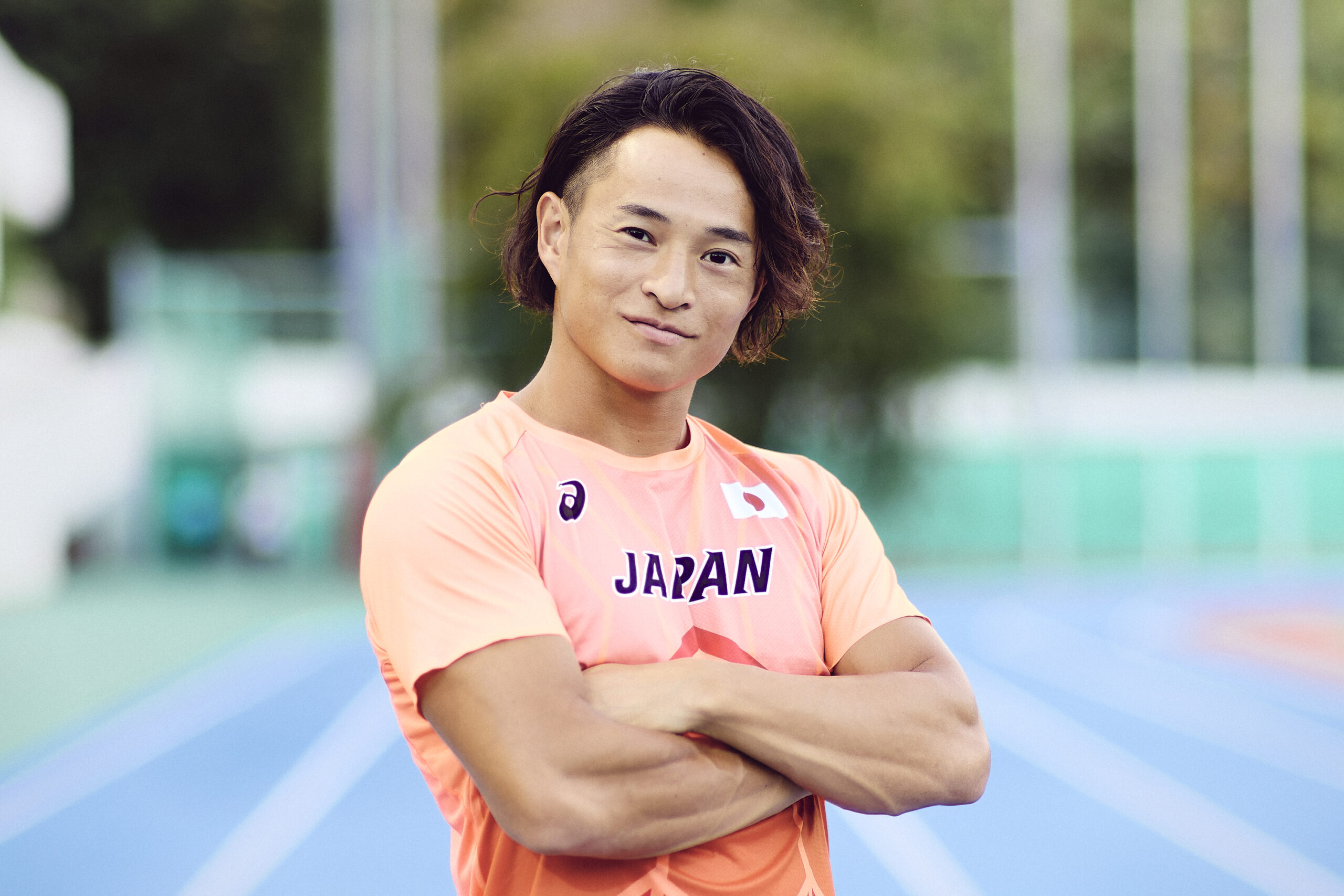
――Please tell us your goal for the Tokyo 2025 Deaflympics.
I have two goals. First one is to break the World Deaf Record in the 100m (10.21). I want to achieve that at the Deaflympics. The other goal is to win triple crown. I want to win three gold medals in the 100m,200m, 4×100m relay. I want to achieve this by winning against Maki and Shopuru.
I want everyone to see it at the venue. This is the best stage for us deaf athletes to shine, and we look forward to your continued support!
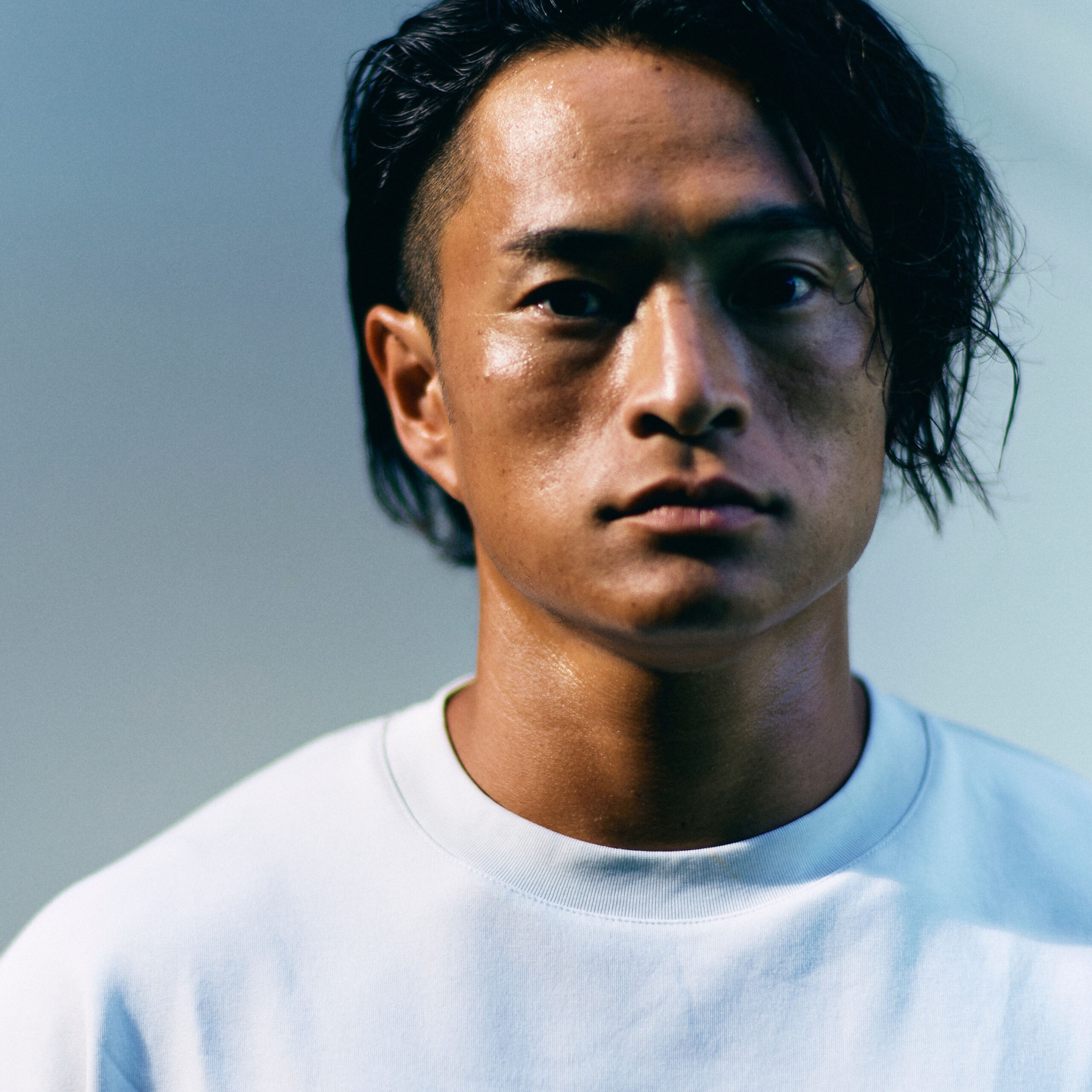
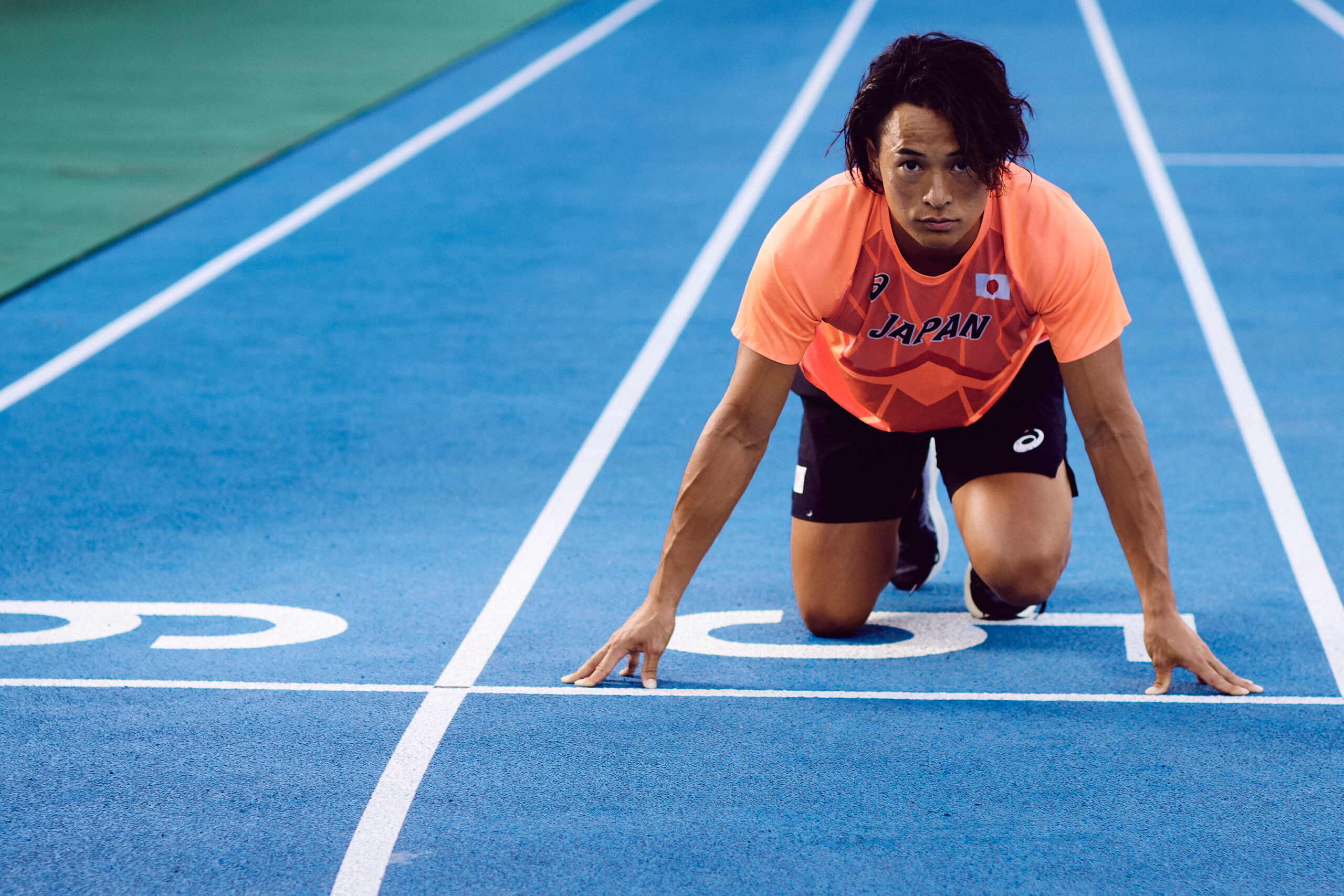
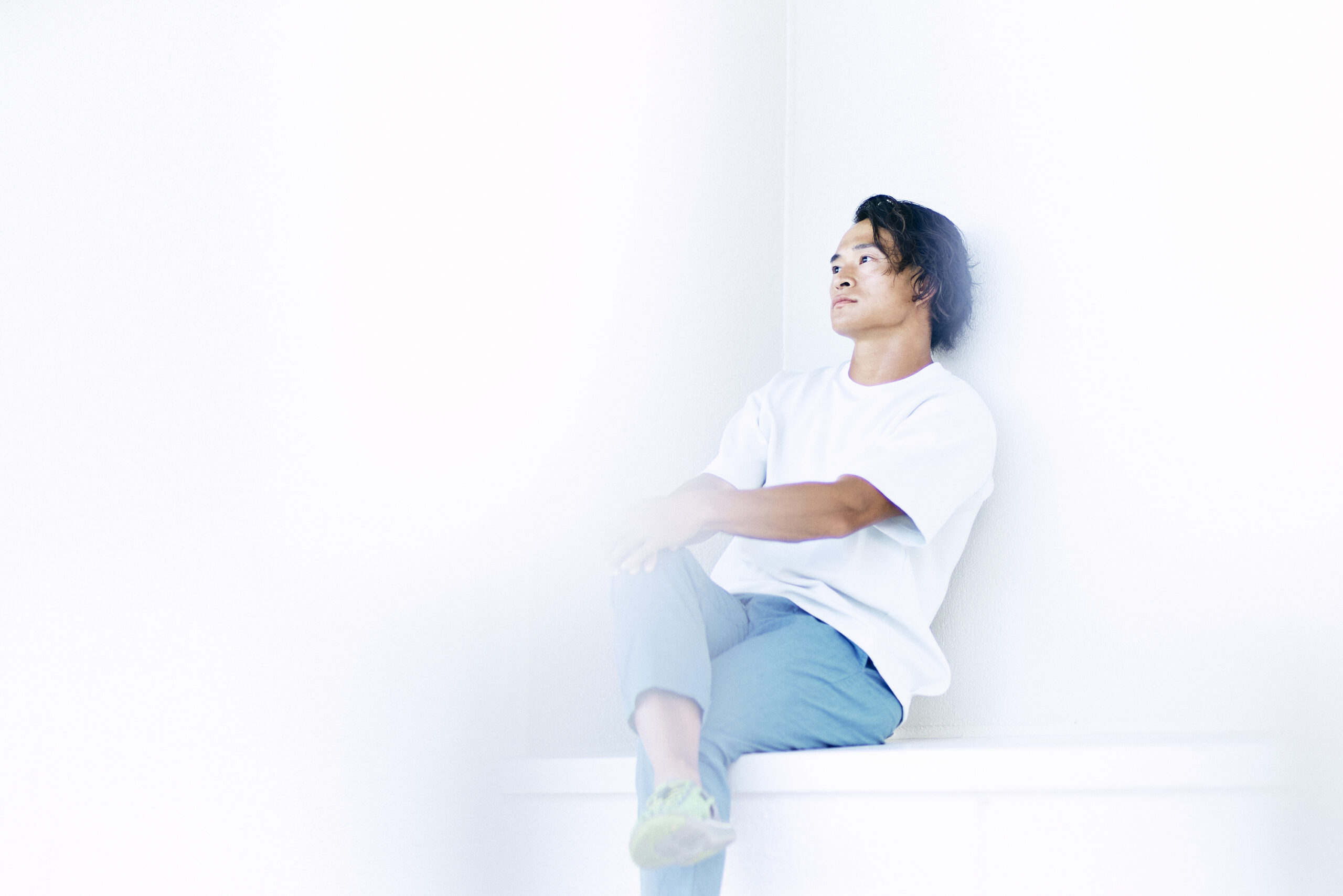

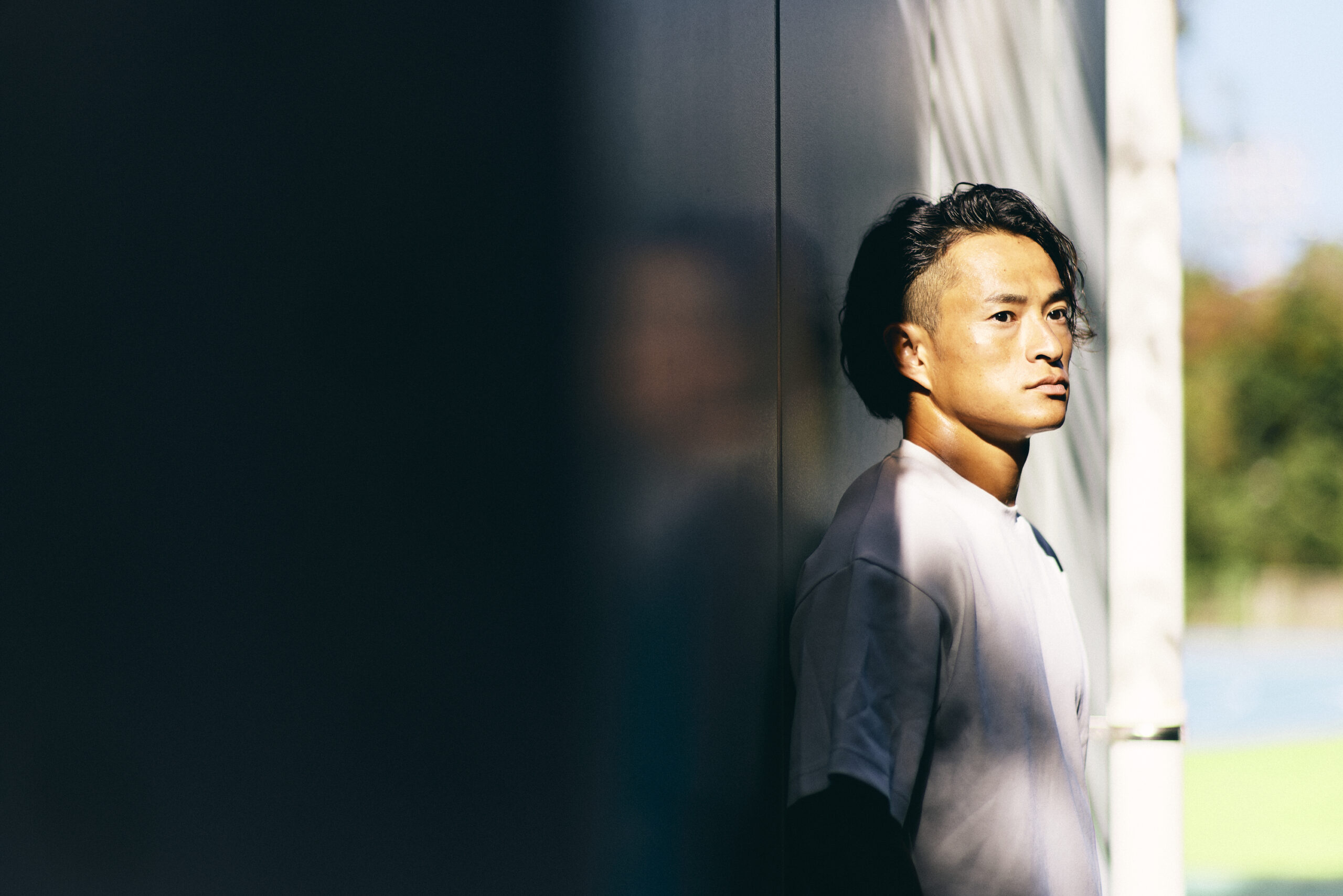
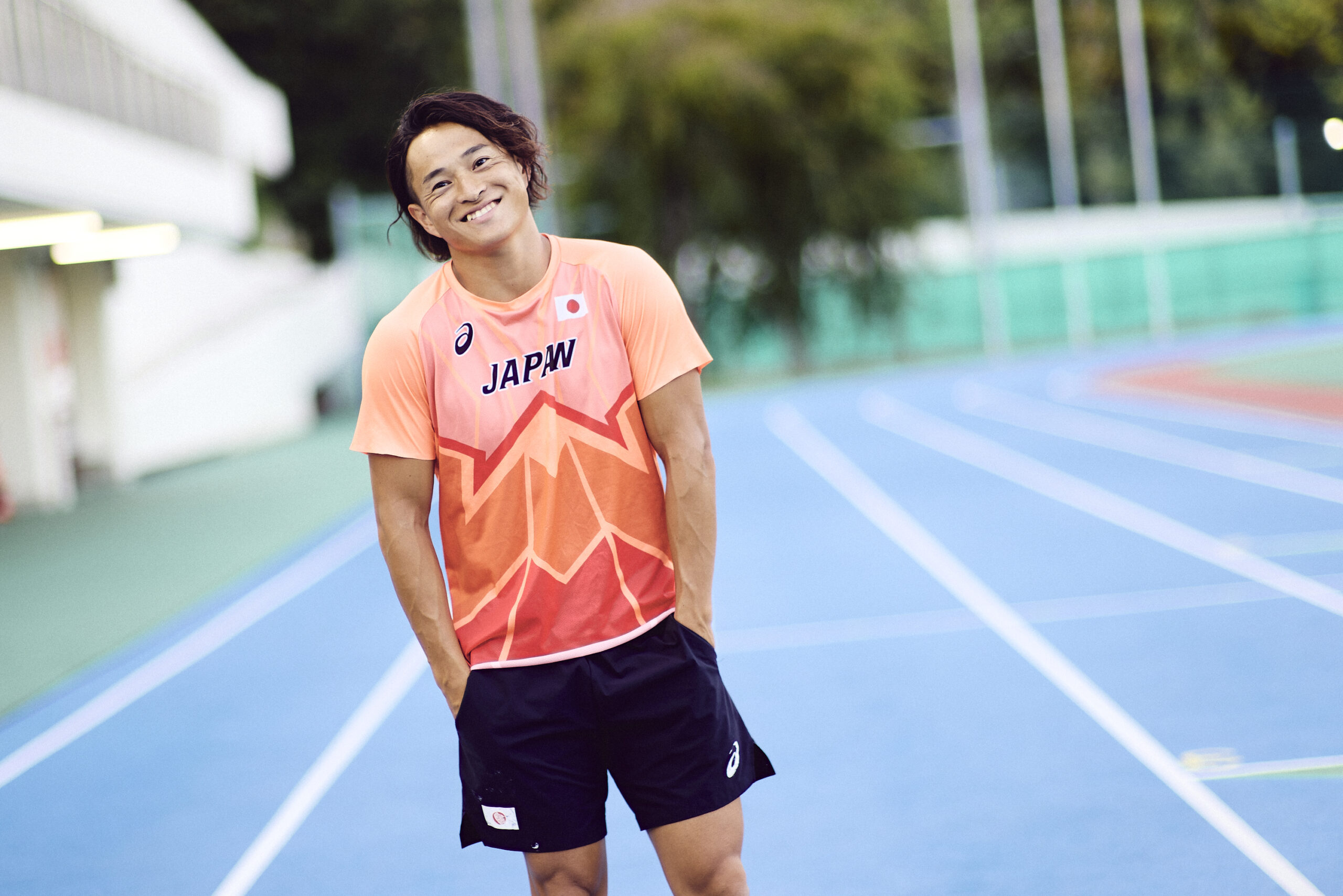
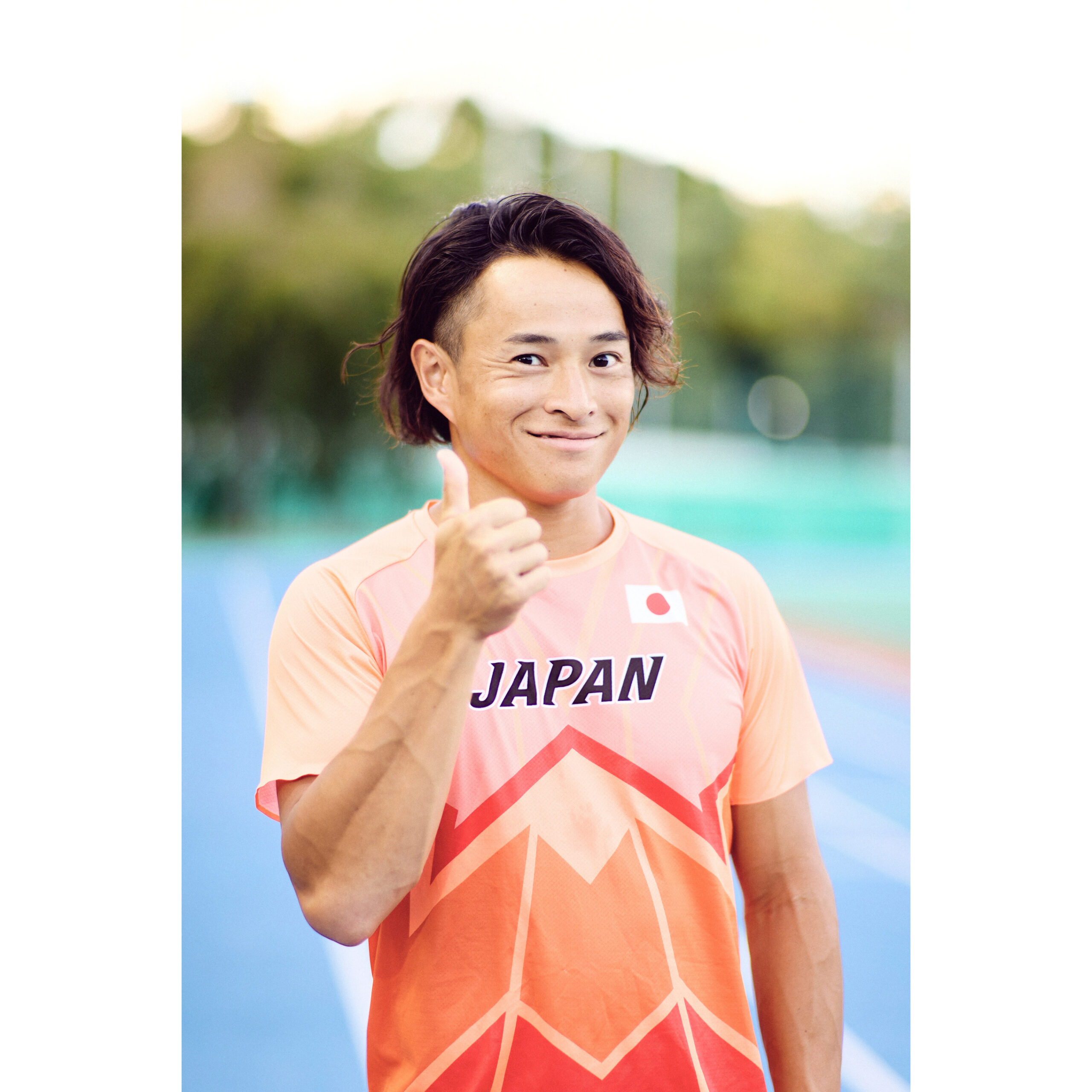
Instagram:stt3011
《Japan Deaf Athletics Association》
Web:https://www.j-daa.or.jp/jdaa/
Instagram:jdaa2002
text by Moritaka Ohashi
photographs by Uta Mukuo

